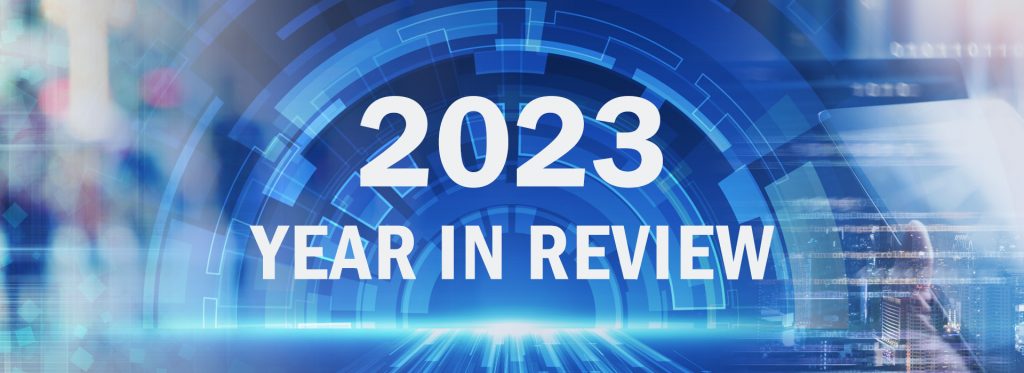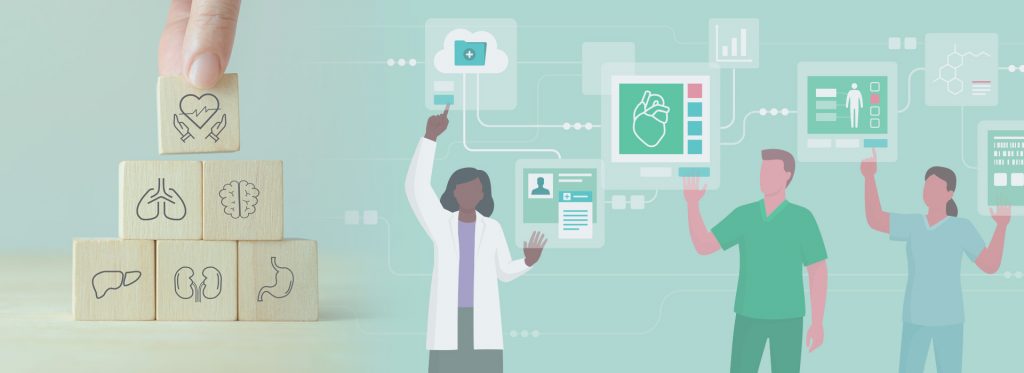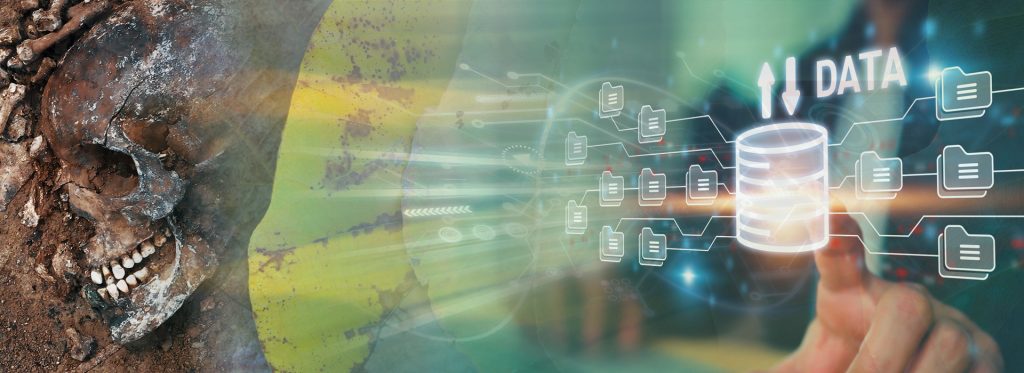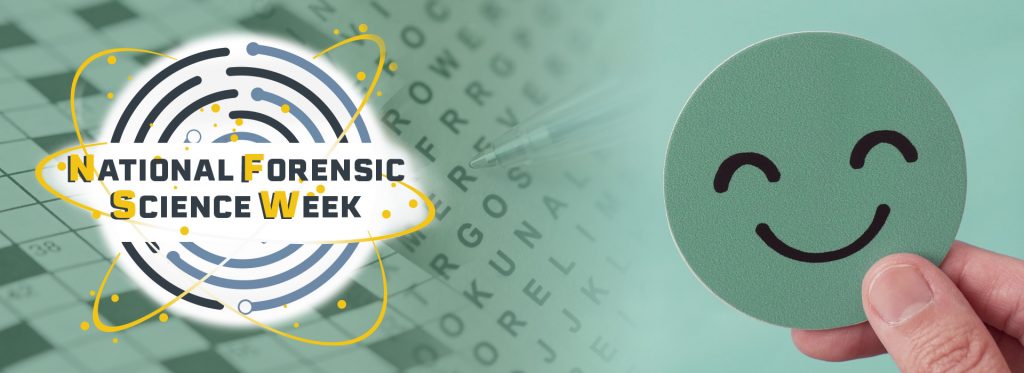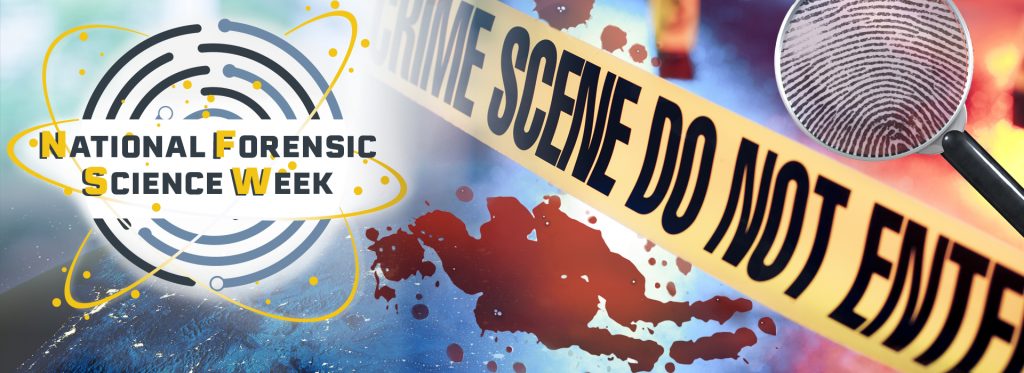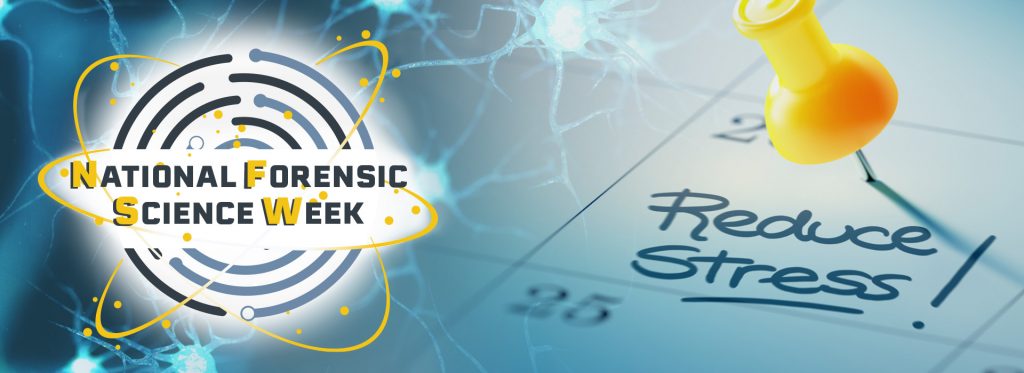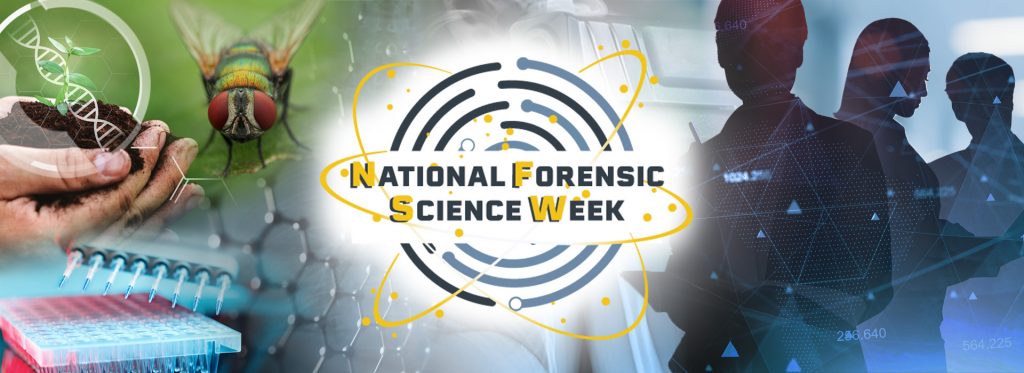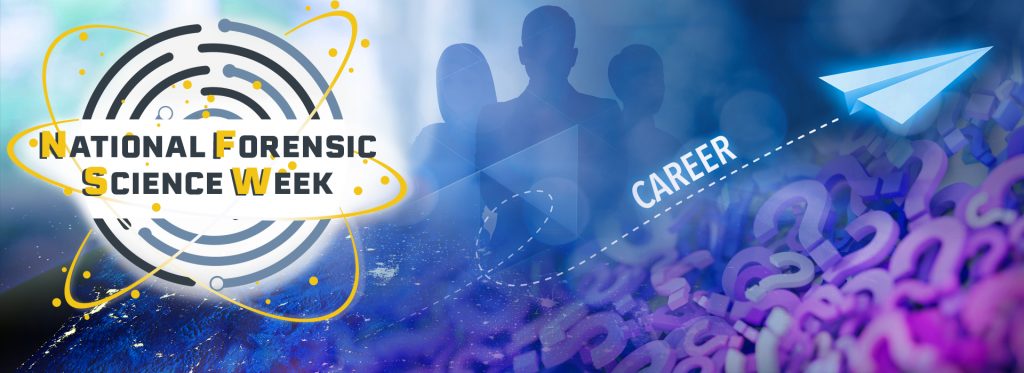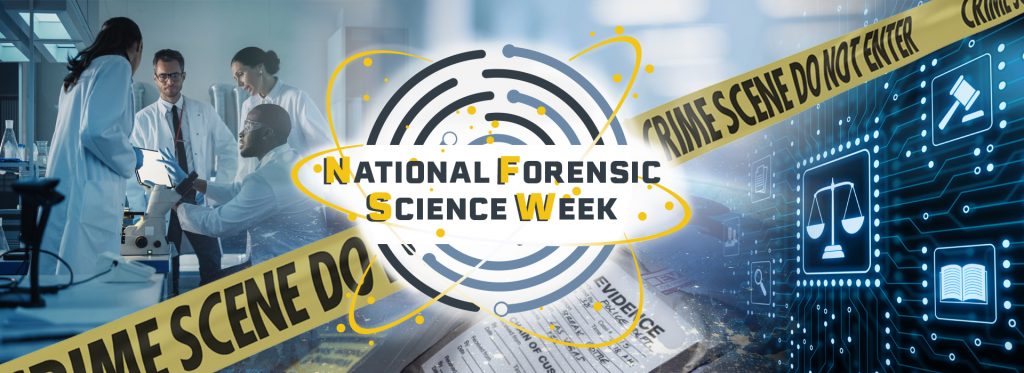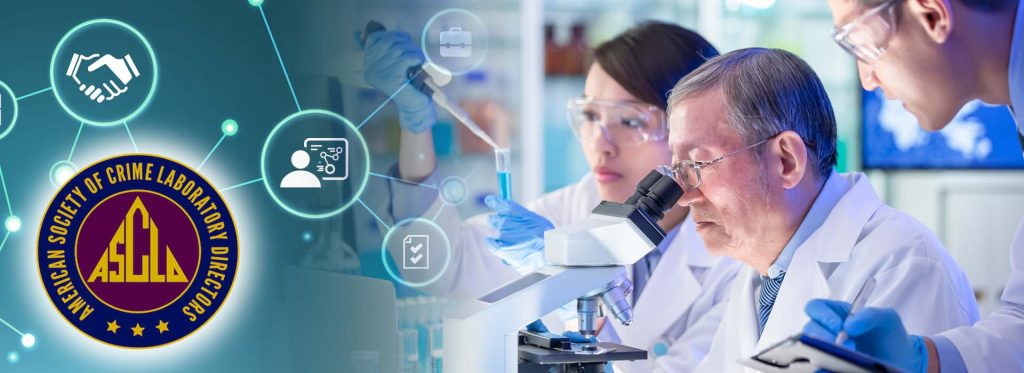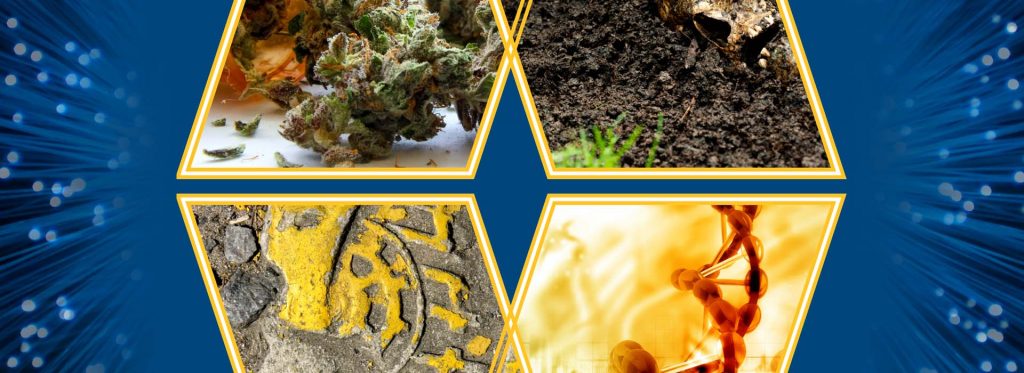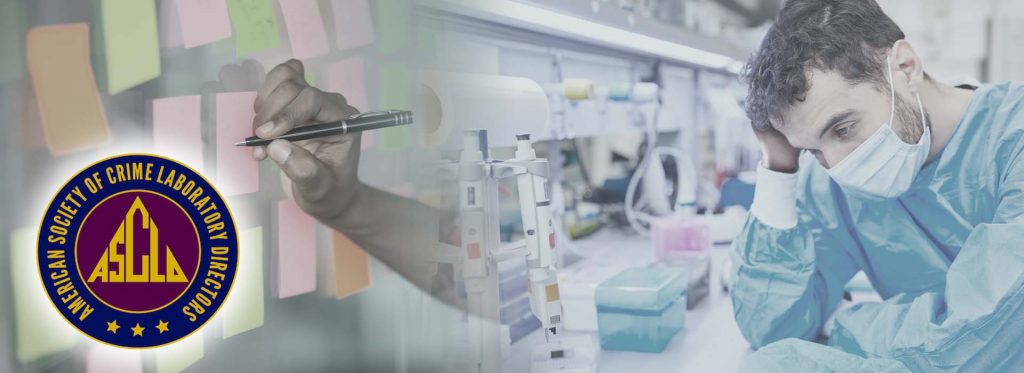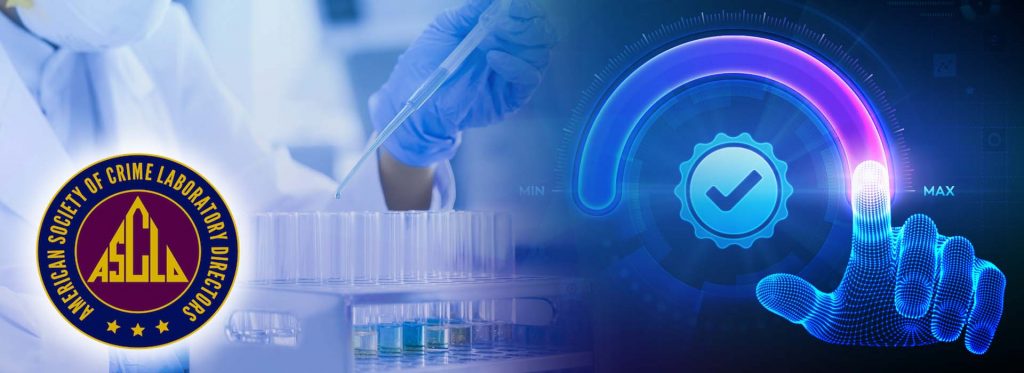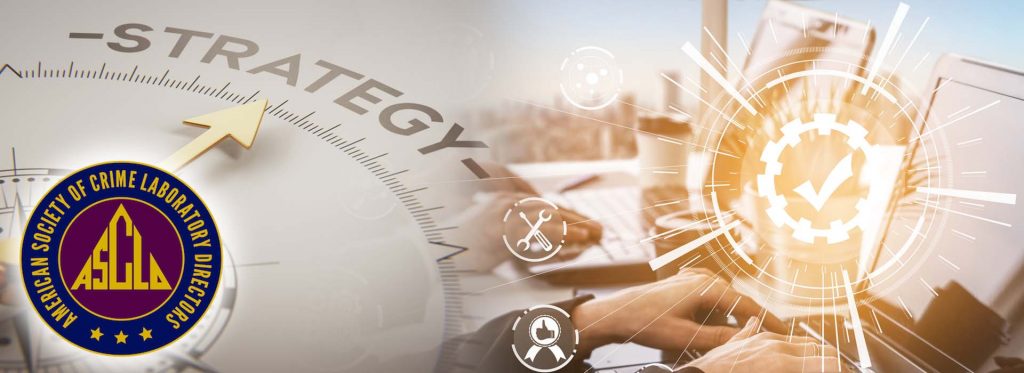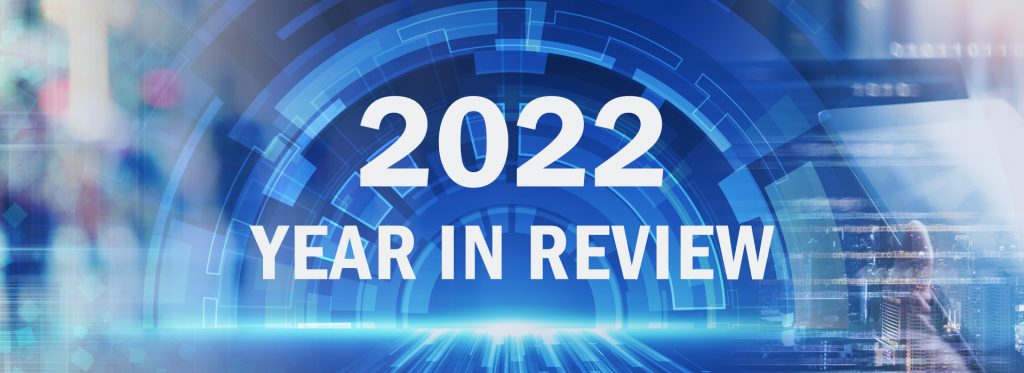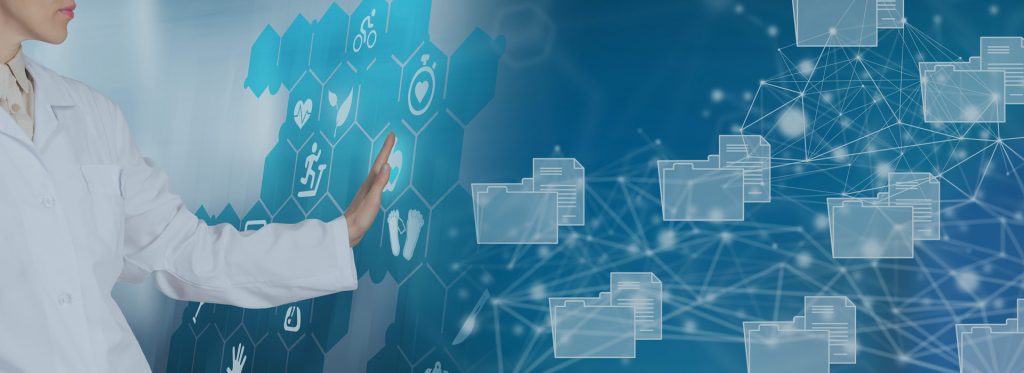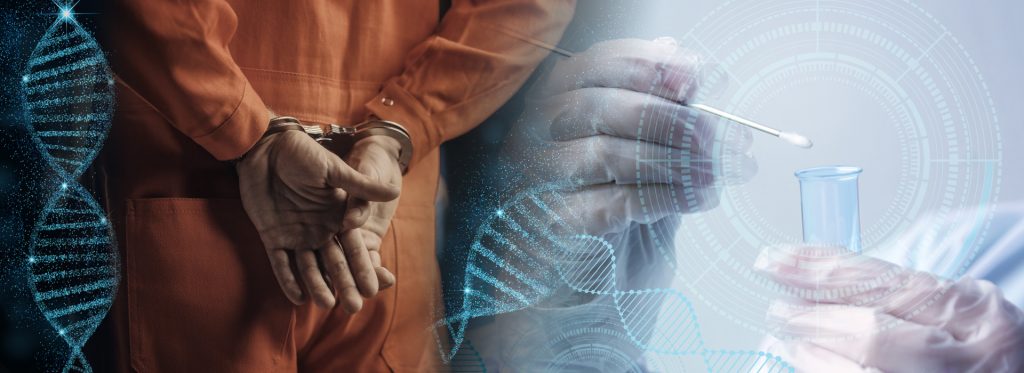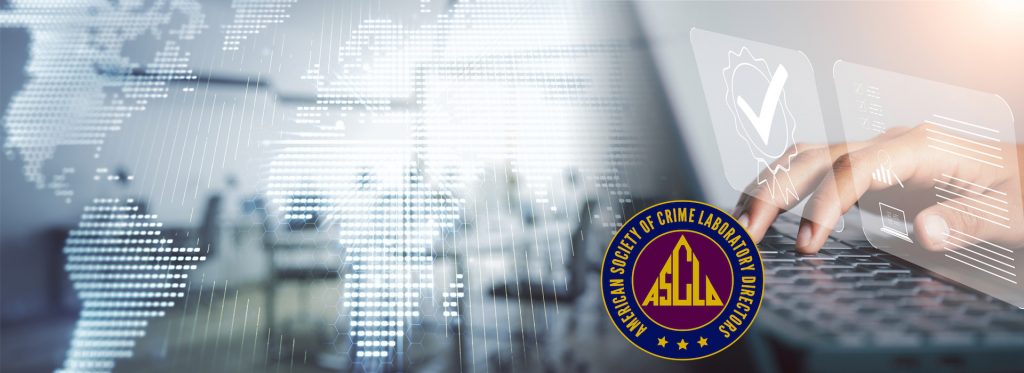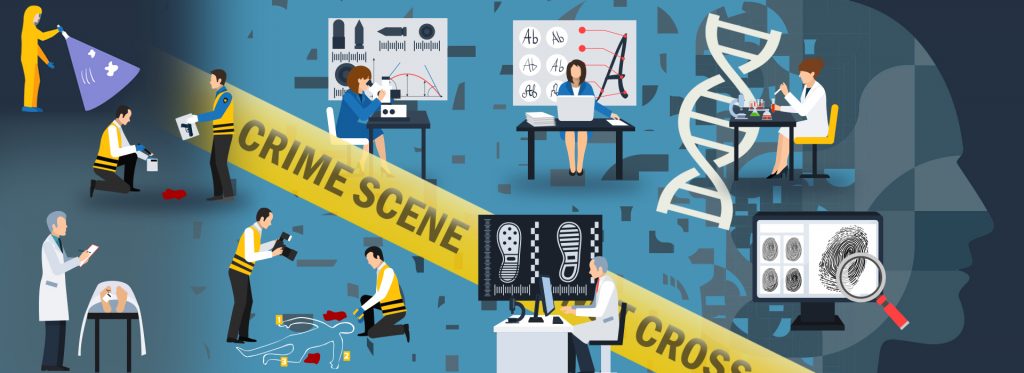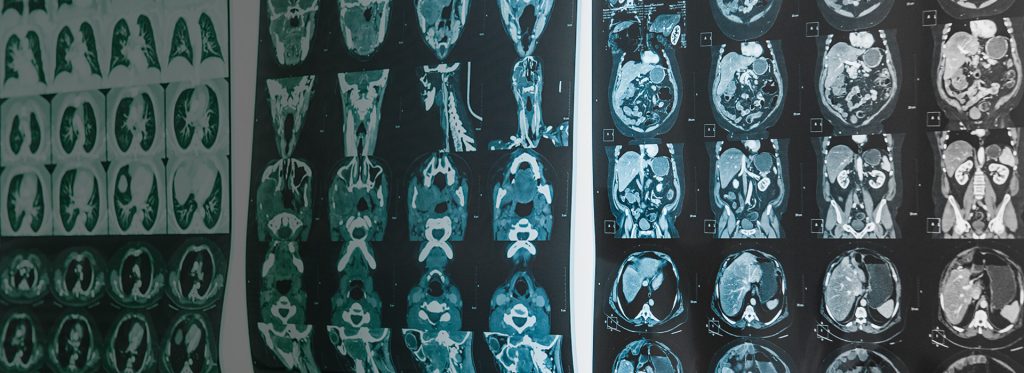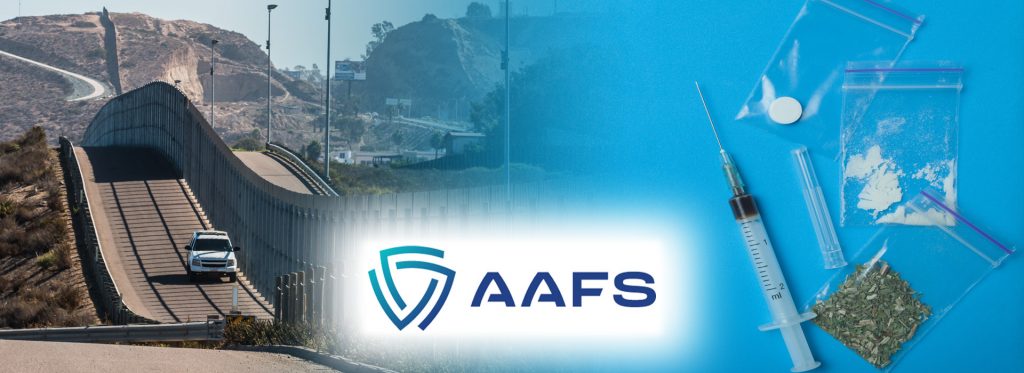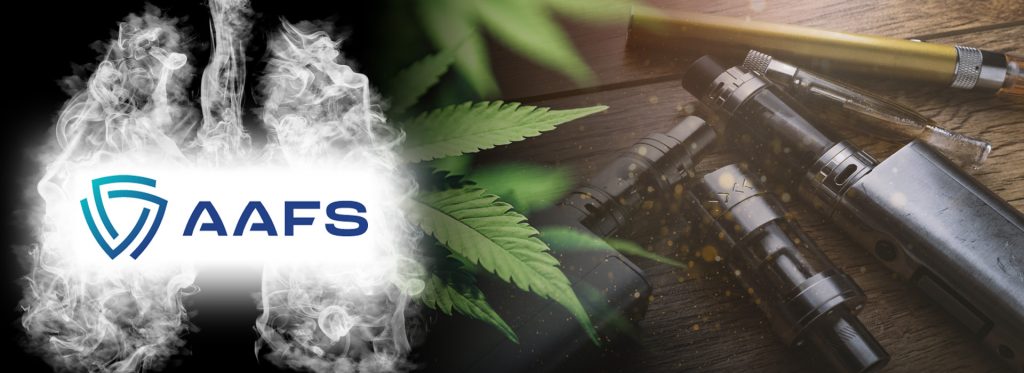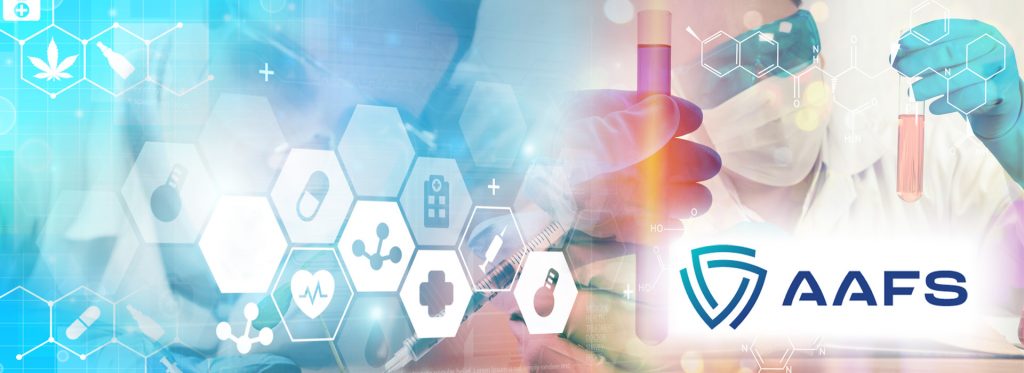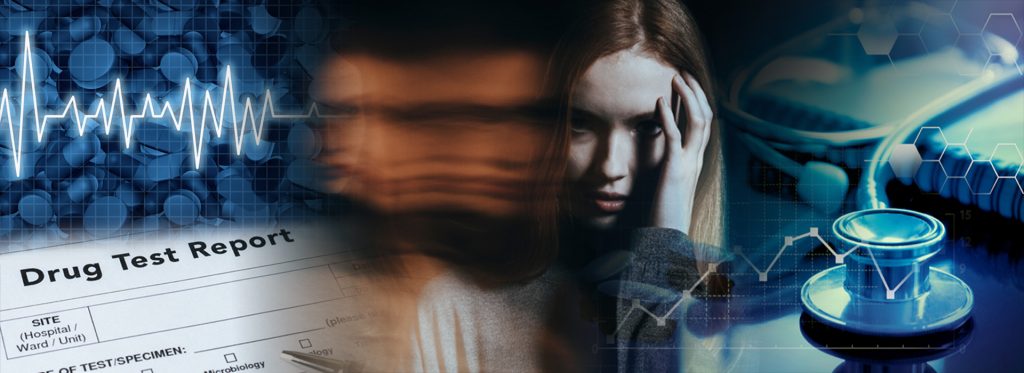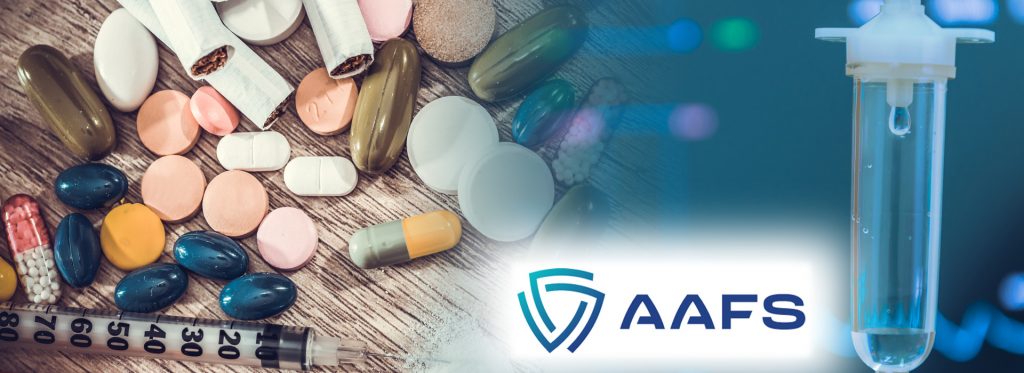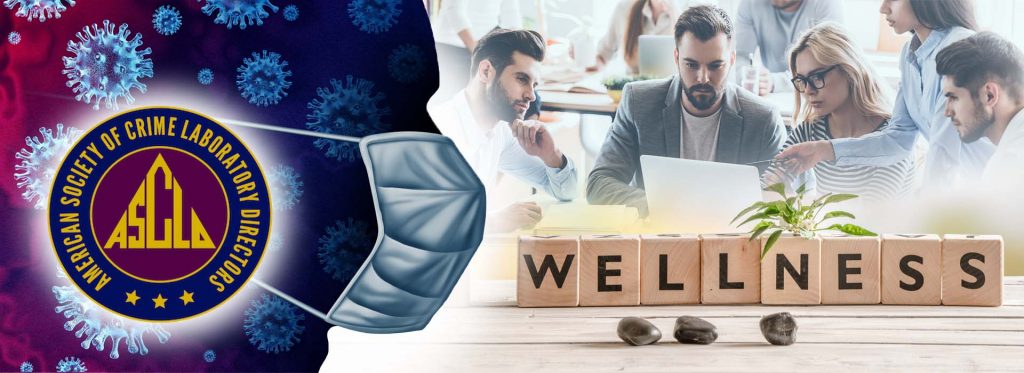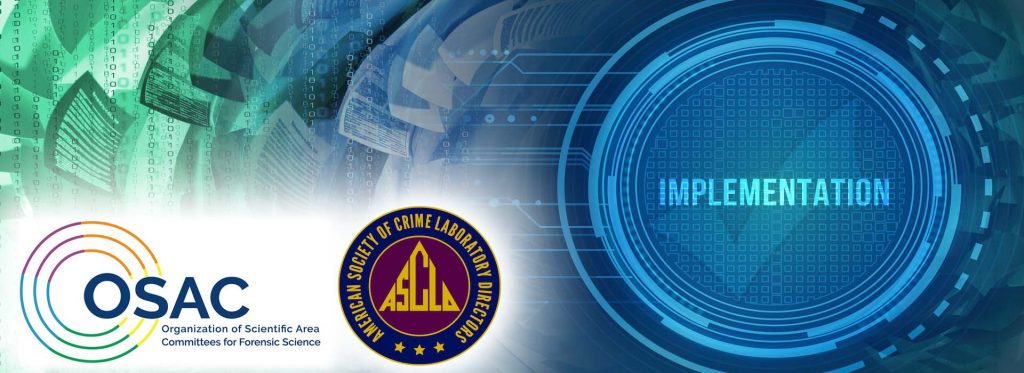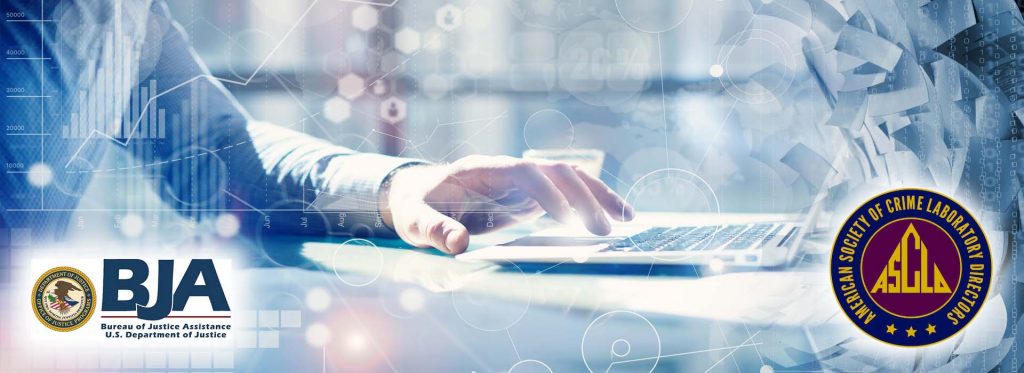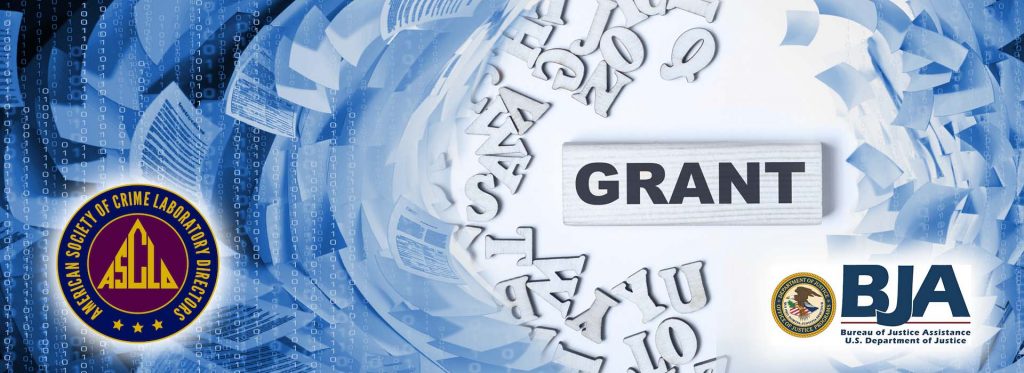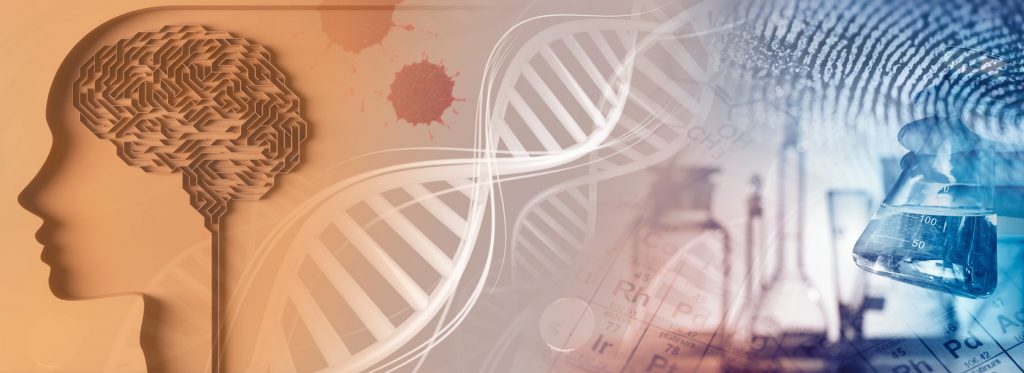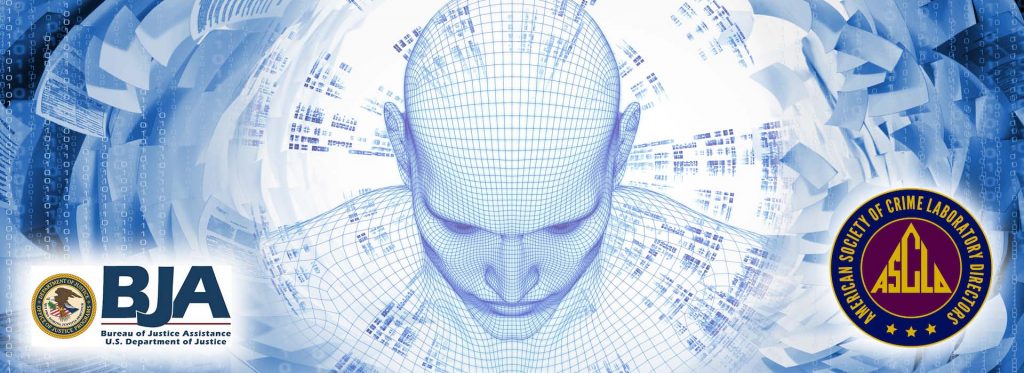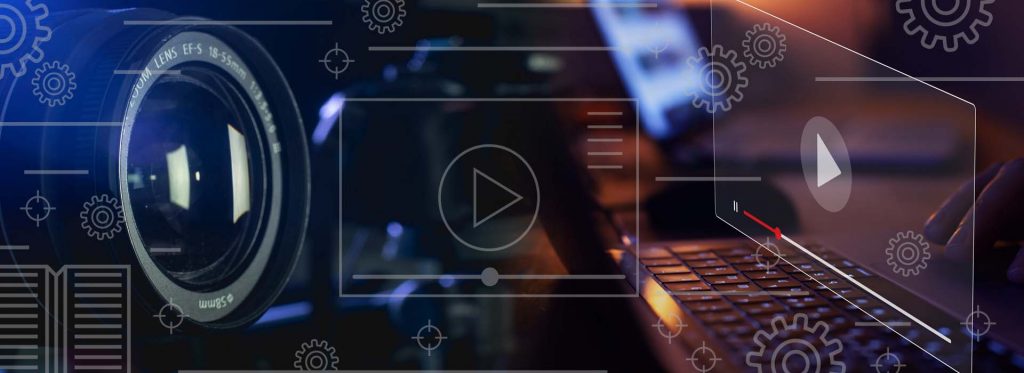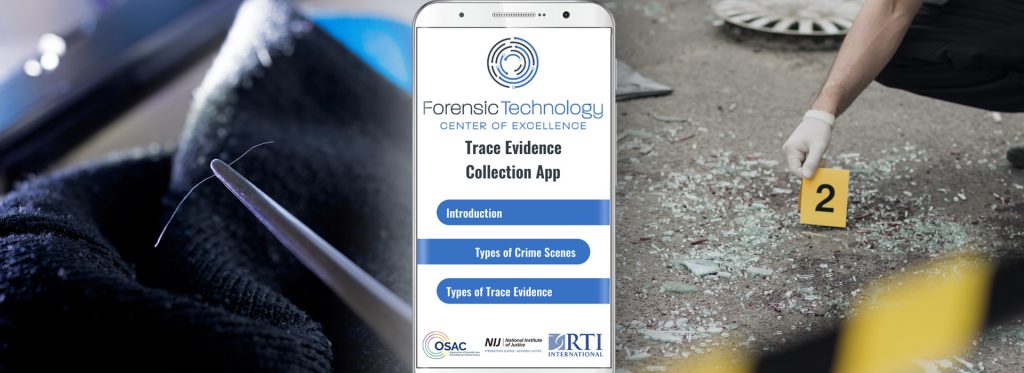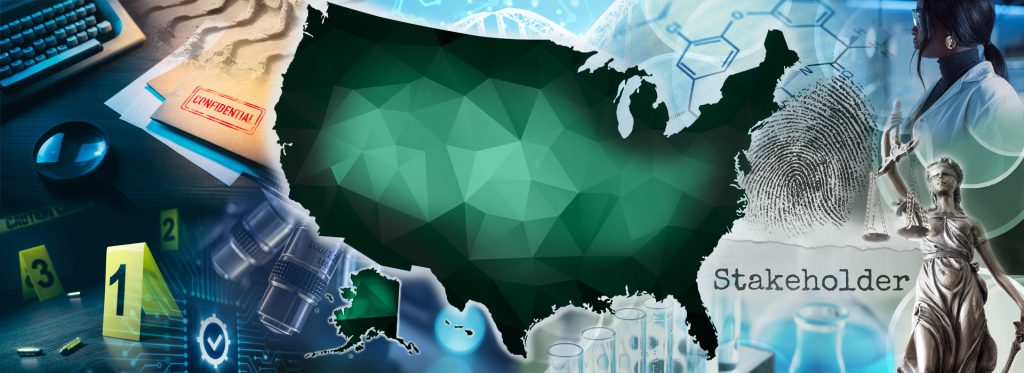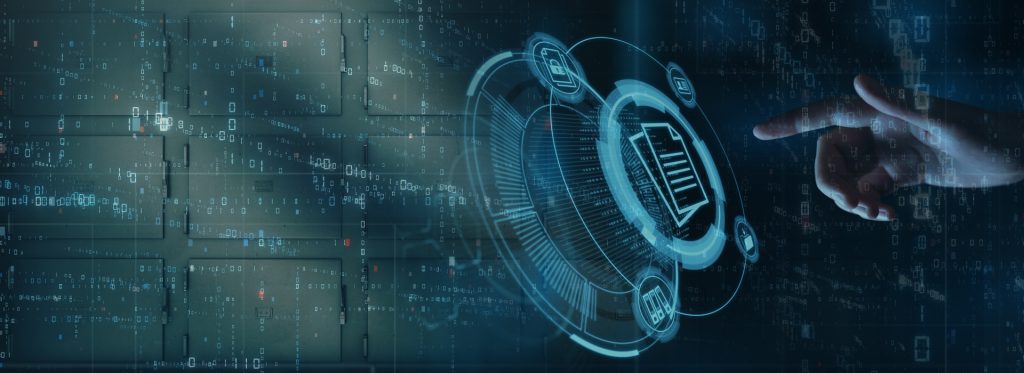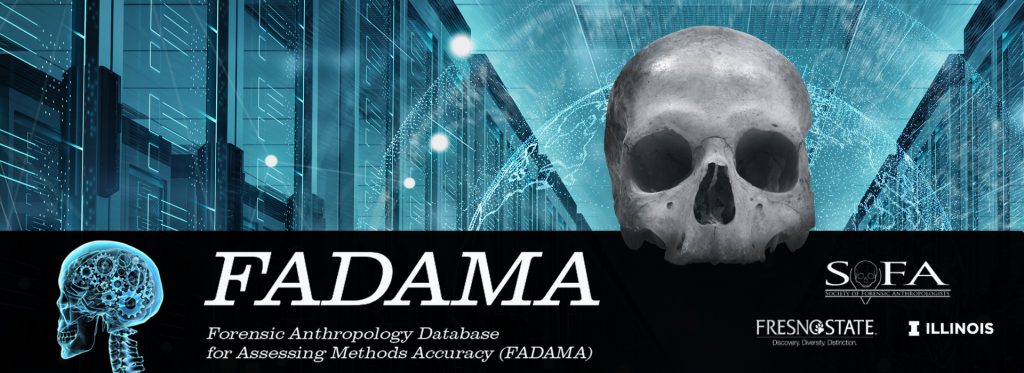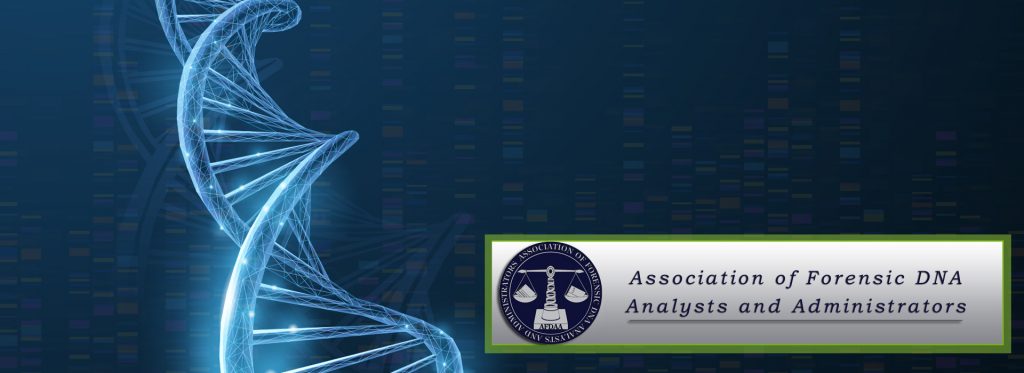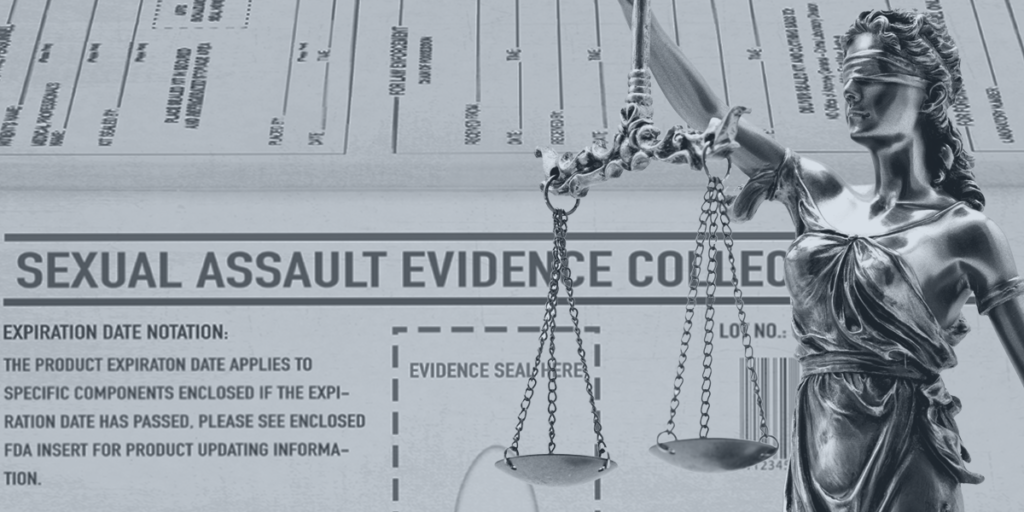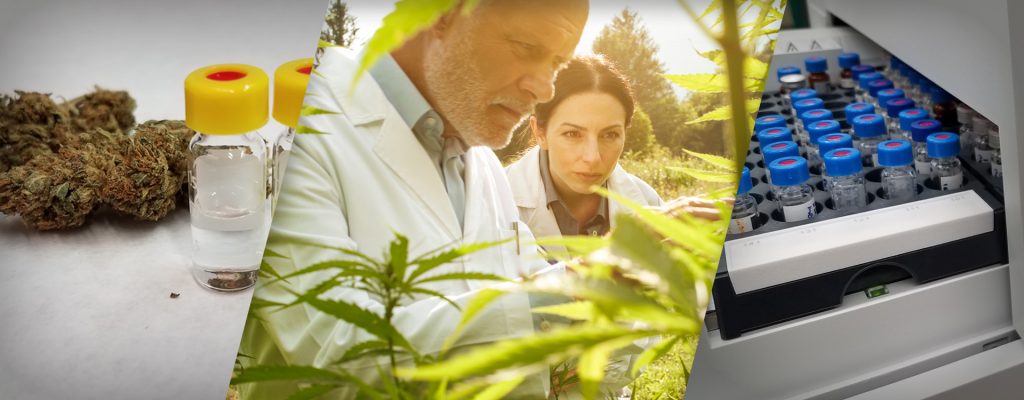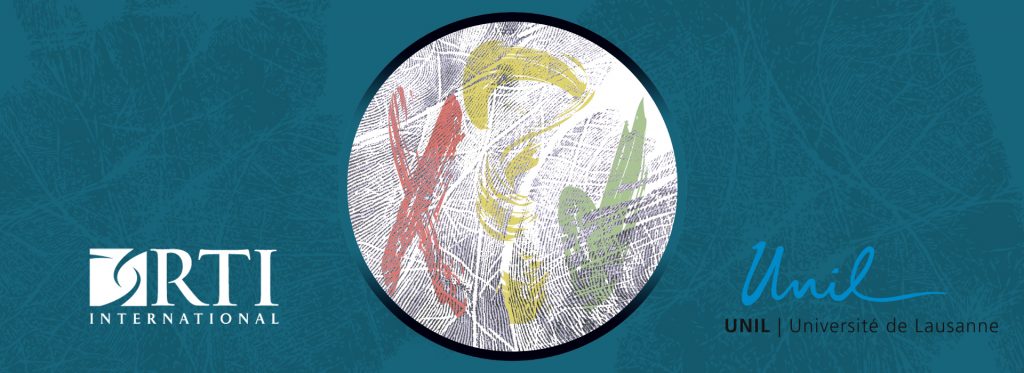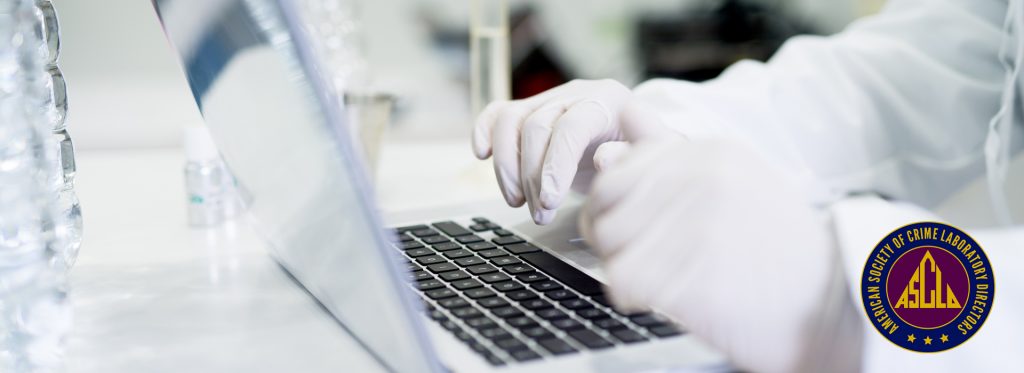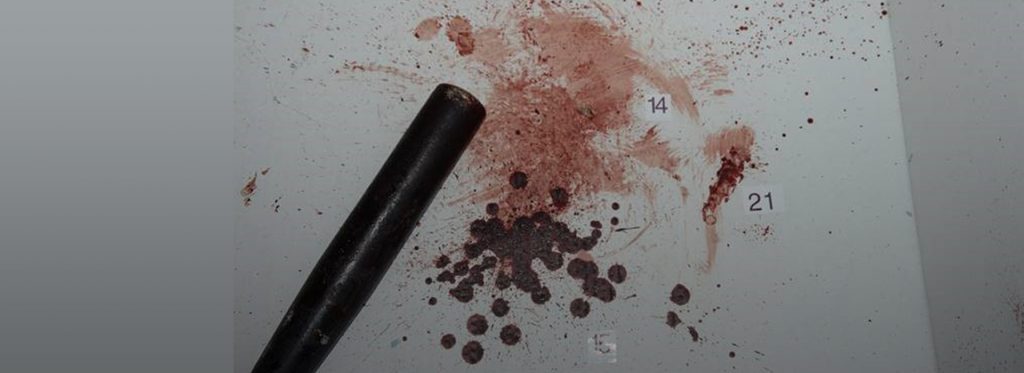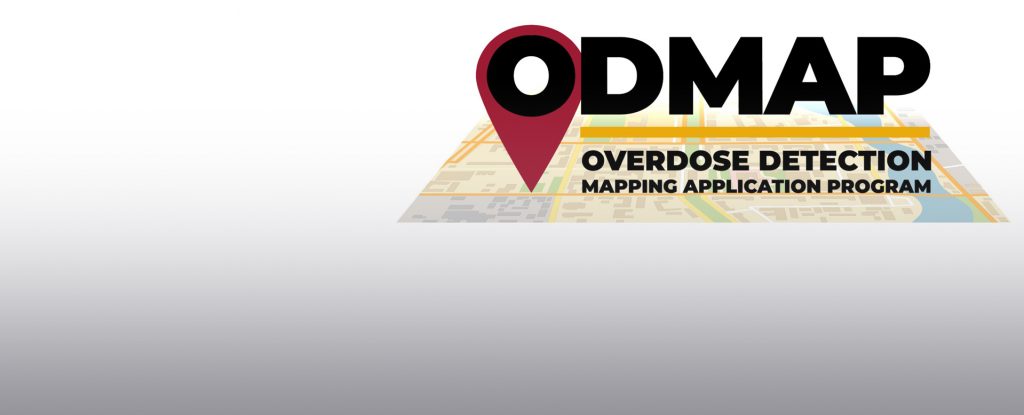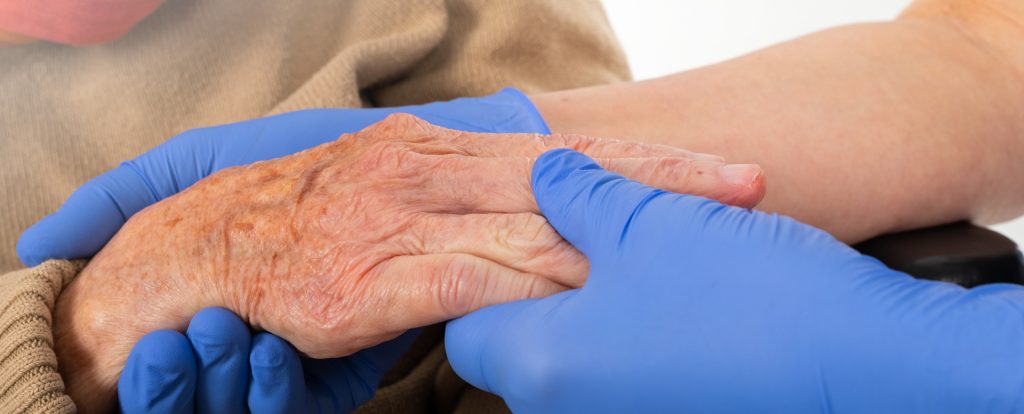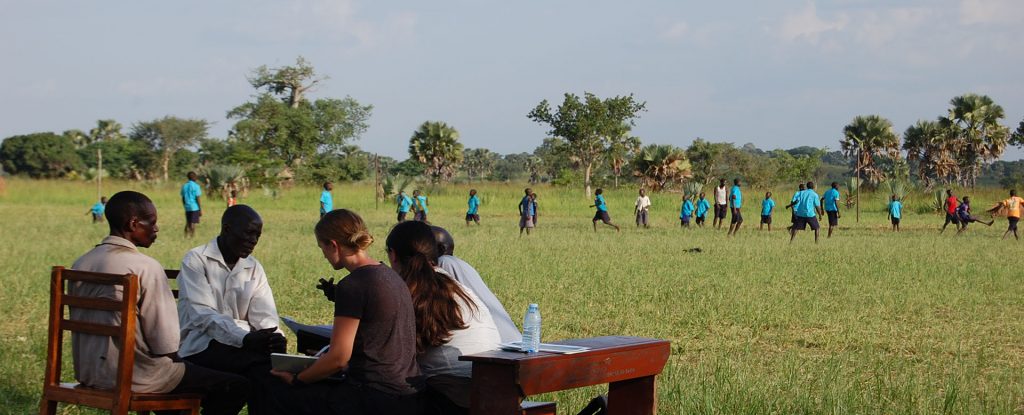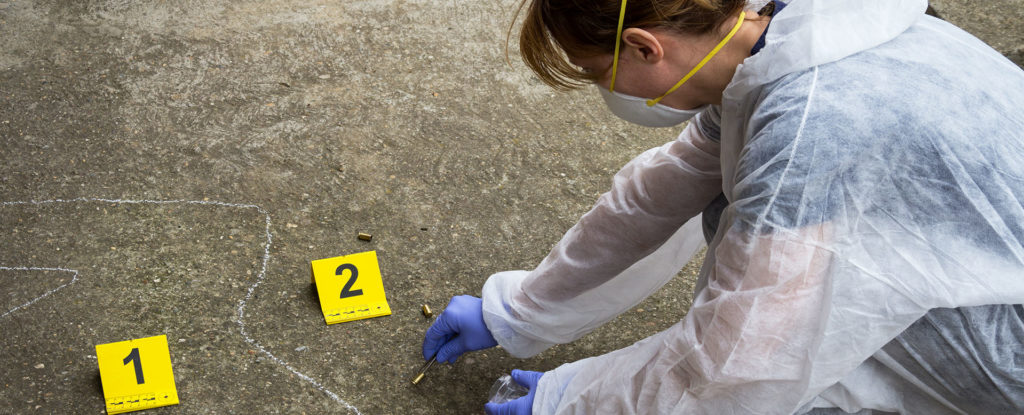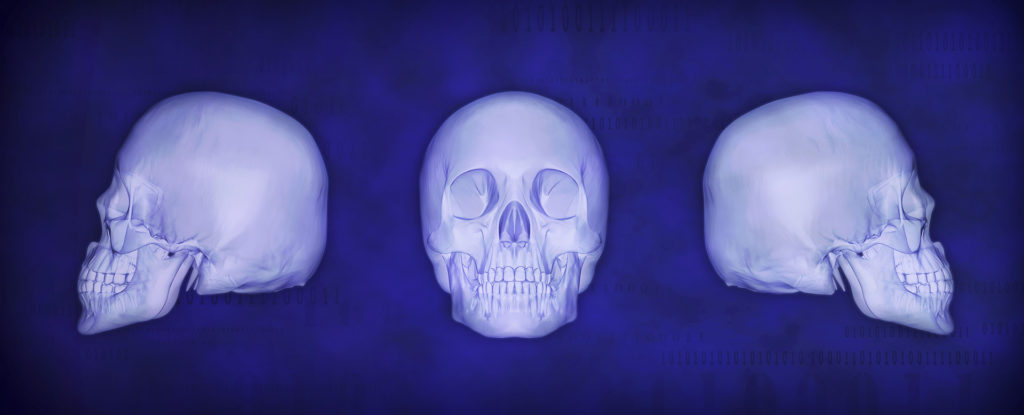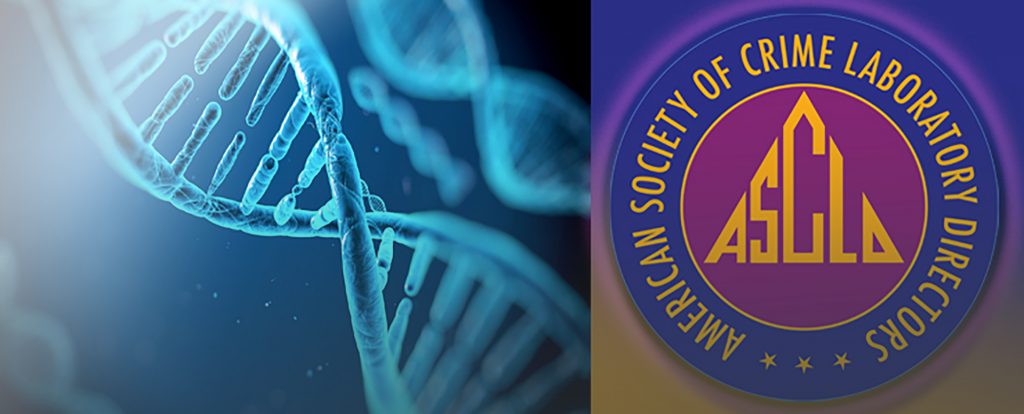All of our webinars, reports, podcast episodes, and other educational resources are available to the public at no cost.
Funding for the Forensic Technology Center of Excellence has been provided by the National Institute of Justice.
To filter, simply click on the topics below.
Forensic Professional Wellbeing Toolkit
Overview Forensic professionals often work in dynamic and atypical environments, where they are exposed to sensitive case details, work closely with law enforcement counterparts, and are required to make important decisions quickly. As a result, forensic professionals are vulnerable to…
Driving Success: Leadership Principles for Building the Right Team
← Back to Webinar Series Page This webinar originally occurred on March 11, 2025 Duration: 30 minutes Overview Effective leadership isn’t just about setting the vision-it’s about having the right people to execute it. Hire strategically, align intentionally, and lead…
Operational Needs Assessment Intake Form
Overview Pursuant to the March 2024 Joint Explanatory Statement for the Commerce, Science, Justice, and Related Agencies Appropriations Act, the National Institute of Justice, in collaboration with its Forensic Technology Center of Excellence (FTCOE), is working towards an operational needs…
Just Advancements in Death Investigation Practices
Original Release Date: February 21, 2025 In this special release episode, Just Science sat down with Chuck Heurich, Senior Physical Scientist with the National Institute of Justice (NIJ), and Dr. Jennifer Snippen, experienced medicolegal death investigator and consultant, to discuss…
2025 NIJ Forensic Science R&D Symposium
Overview The Forensic Technology Center of Excellence (FTCOE) assisted the National Institute of Justice (NIJ) in hosting the annual NIJ Forensic Science Research and Development (R&D) Symposium on Tuesday, February 18, 2025 at the 77th Annual American Academy of Forensic Sciences (AAFS)…
We’re Ready for a Change: Preparing for New Technology
← Back to Webinar Series Page This webinar originally occurred on February 13, 2025 Duration: 30 minutes Overview Adopting new technology, particularly new software, can often present unforeseen challenges in the form of properly aligning the end-product to your actual…
Latent Print Technical Leader Working Group (LPTL-WG)
Latent Print Technical Leader Working Group The Latent Print Technical Leader Working Group (LPTL-WG), supported by the National Institute of Justice (NIJ), in partnership with the Forensic Technology Center of Excellence (FTCOE) at RTI International, is an emerging community of…
2024 Year in Review
A Message from the Forensic Technology Center of Excellence As we move into 2025, we want to express our deep appreciation for your continued engagement and support. We are proud to contribute to advancing both the science and the real-world…
Just Mass Disaster Emergency Response in Maui, Hawaii
Original Release Date: November 15, 2024 In episode one of our Case Studies season, Just Science sat down with Anthony (Tony) Earles, Forensics/Identification Unit Supervisor at the Maui Police Department, to discuss the Maui wildfires that occurred on August 8,…
Improving Consistency in Forensic Reporting Through DEA’s GUARDS Comprehensive Methodology
Overview This workshop originally occurred on December 5, 2024 Duration 3 hours 10 minutes The United States Drug Enforcement Administration’s (DEA) Global Uniform Analysis and Reporting of Drug-Related Substances (GUARDS) methodology addresses challenges in identifying synthetic and emerging drugs, improves…
Assessing Stress Among MDI & Building Resilient Professionals
Tuesday, October 29, 2024 | 1:00 PM – 2:00 PM Eastern Duration: 1 hour Overview This webinar aims to address the critical issue of mental health and wellness for medicolegal death investigation (MDI) professionals, with a focus on preventing PTSD,…
MDI Myth: Talking with Decedent’s Families is Simple and Routine
← Back to Webinar Series Page This webinar originally occurred on September 26, 2024 Duration: 1 hour Overview When people experience a traumatic event, they often remember how they were made to feel rather than what was said. Experiencing the…
2024 MDI MythBusters Webinar Series
Overview Following the conceptualization of the popular MythBusters television series (Discovery Channel 2003-2016), this webinar series explores evidence-based methods, operational decision making, and case study findings to prove or disprove common beliefs about medicolegal death investigation. It is widely accepted…
2024 National Forensic Science Week Murder Mystery Event
← Back to Forensic Science Week Main Page Overview As part of National Forensic Science Week (September 15-21, 2024), the Forensic Technology Center of Excellence (FTCOE) is offering a murder mystery event! For this year’s murder mystery, we will be…
2024 National Forensic Science Week
Overview National Forensic Science Week (September 15-21, 2024) recognizes the contribution that forensic science makes to the criminal justice system. It is an opportunity to celebrate academic programs, forensic professionals, and scientific research in the various forensic disciplines. Throughout the…
2024 National Forensic Science Week Test Your Knowledge: Cold Case Investigations
← Back to Forensic Science Week Main Page ← Back to All Puzzles Page Puzzle Instruction To view and complete the puzzle in a separate window, click the expanding arrows in the tool bar above the puzzle title. To input…
2024 National Forensic Science Week Find the Terms: Cold Case Investigations
← Back to Forensic Science Week Main Page ← Back to All Puzzles Page Puzzle Instruction To view and complete the puzzle in a separate window, click the expanding arrows in the tool bar above the puzzle title. To input…
2024 National Forensic Science Week Puzzles
← Back to Forensic Science Week Main Page Overview The FTCOE will release crossword and wordsearch puzzles with forensic science themes that incorporate trivia terminology. Find the Terms wordsearches incorporate themed terminology and Test Your Knowledge crosswords incorporate related trivia to challenge forensic…
2024 National Forensic Science Week Find the Terms: Trace Evidence
← Back to Forensic Science Week Main Page ← Back to All Puzzles Page Puzzle Instruction To view and complete the puzzle in a separate window, click the expanding arrows in the tool bar above the puzzle title. To input…
2024 NIJ Forensic Science Graduate Research Symposium
← Back to Forensic Science Week Main Page Overview This event originally occurred on September 19, 2024Duration: 2 hours Welcome to the 2024 National Institute of Justice (NIJ) Forensic Science Graduate Research Symposium hosted by the Forensic Technology Center of…
2024 National Forensic Science Week Test Your Knowledge: Trace Evidence
← Back to Forensic Science Week Main Page ← Back to All Puzzles Page Puzzle Instruction To view and complete the puzzle in a separate window, click the expanding arrows in the tool bar above the puzzle title. To input…
2024 National Forensic Science Week Find the Terms: Forensic Toxicology
← Back to Forensic Science Week Main Page ← Back to All Puzzles Page Puzzle Instruction To view and complete the puzzle in a separate window, click the expanding arrows in the tool bar above the puzzle title. To input…
2024 National Forensic Science Week Test Your Knowledge: Forensic Toxicology
← Back to Forensic Science Week Main Page ← Back to All Puzzles Page Puzzle Instruction To view and complete the puzzle in a separate window, click the expanding arrows in the tool bar above the puzzle title. To input…
2024 National Forensic Science Week Teacher How-To Guides
← Back to Forensic Science Week Main Page Overview Calling all science teachers! Are you looking for fun, forensic activities and experiments that you can use with your class or share with fellow forensic science enthusiasts? This year for National…
Next Generation Sequencing Virtual Roundtable: Perspectives from Early Adopters and Researchers
Date August 2024 Overview In 2023, the Forensic Technology Center of Excellence (FTCOE), in partnership with the National Institute of Justice (NIJ), convened a virtual roundtable of forensic science service providers (FSSPs) and forensic science researchers with experience implementing next…
Just Public Health and Safety Data Sharing in Georgia
Original Release Date: August 9, 2024 In the final episode of our Community-based Solutions for Substance Use Challenges season, Just Science sits down with Kristen Lee, Substance Use Program Coordinator at the Georgia Criminal Justice Coordinating Council, Lizann Roberts, Executive…
Just All Hands On DECK for Drug Endangered Youth
Original Release Date: August 2, 2024 In episode seven of our Community-based Solutions for Substance Use Challenges season, Just Science sits down with Cristi Cain, Local Public Health Section Director at the Kansas Department of Health and Environment, and Sally…
Using Objective Criteria for Bloodstain Pattern Classification
This webinar originally occurred on August 1, 2024 Duration: 1 hour Overview The science of bloodstain pattern analysis evaluates bloodstain patterns present at a scene or on various objects, for the purpose of interpreting patterns in the context of the…
The Impacts of Governing Agency: A Comparison of Resources in the Patchwork of Medicolegal Death Investigation Systems
Publication Forensic Science International: Synergy, April 2024 Authors Hope M. Smiley-McDonald | RTI International Kelly A. Keyes | RTI International Sean Wire | RTI International Kathryn Greenwell | RTI International Nelson A. Santos | RTI International Jeri D. Ropero-Miller | RTI…
Foundational Statistics for Forensic Toxicology Webinar Series
Overview In the field of Forensic Toxicology, numerical data and statistics abound, appearing in quantitative analyses, quality control, measurement uncertainty, proficiency testing, method validation, experimental design, peer-reviewed journal articles, business analytics, and more. Foundational statistical knowledge is critical to understanding…
Technology Use Among the Nation’s Medical Examiner and Coroner Offices: Data from the 2018 Census of Medical Examiner and Coroner Offices
Publication Forensic Science International: Synergy, May 2024 Authors Liat C. Weinstein | RTI International Kelly A. Keyes | RTI International Connor Brooks | Bureau of Justice Statistics Micaela A. Ascolese | RTI International Hope M. Smiley-McDonald | RTI International Jeri…
Virtual Workshop Series: 3D Firearm Imaging
Overview The National Institute of Justice (NIJ) and the Forensic Technology Center of Excellence (FTCOE) delivered a four-session Virtual Workshop Series: 3D Firearm Imaging from August 21 to September 11, 2024. Throughout this workshop series, attendees heard from a range…
FITS—Functional Implementation of Thorough and Systematic Approaches for Fracture Examinations
This webinar originally occurred on June 4, 2024 Duration: 1 hour Overview The separation of materials such as tape, plastics, and textiles from their original source frequently occurs during violent activities, leaving distinct patterns along the fractured edges. These features…
Forensic Science Failure Mode and Effects Analysis Application
Overview Failure Mode and Effects Analysis (FMEA) is a risk management tool that identifies and quantifies the influence of failures or potential failures in processes or activities. The application automates FMEA by evaluating the level of risk associated with an…
Graphic Description – Medicolegal Death Investigation Frequently Used Data Elements for Toxicology and Seized Drugs
Date February 2024 Overview The National Institute of Justice (NIJ)-in partnership with its Forensic Technology Center of Excellence (FTCOE) at RTI International and the National Center for Health Statistics, Centers for Disease Control and Prevention (CDC)-convened a virtual Medicolegal Death…
Graphic Description – Frequently Used Data Elements Collection Systems and Primary Documentation
Date April 2024 Overview The National Institute of Justice (NIJ)-in partnership with its Forensic Technology Center of Excellence (FTCOE) at RTI International and the National Center for Health Statistics, Centers for Disease Control and Prevention (CDC)-convened a virtual Medicolegal Death…
Graphic Description – Medicolegal Death Investigation Case Specific Frequently Used Data Elements and Chart
Date April 2024 Overview The National Institute of Justice (NIJ)-in partnership with its Forensic Technology Center of Excellence (FTCOE) at RTI International and the National Center for Health Statistics, Centers for Disease Control and Prevention (CDC)-convened a virtual Medicolegal Death…
Navigating Medical Examiner and Coroner Office Accreditation Challenges: A Practical Guide
Date December 2023 Overview The National Institute of Justice (NIJ), in partnership with the Forensic Technology Center of Excellence (FTCOE) at RTI International and CDC’s National Center for Health Statistics, set out to re-examine common obstacles and barriers that impede…
White Paper – Forensic Community Drug Database Conceptualization
Date February 2024 Overview The National Institute of Justice (NIJ)-in partnership with its Forensic Technology Center of Excellence (FTCOE) at RTI International and the National Center for Health Statistics, Centers for Disease Control and Prevention (CDC)-convened a virtual Medicolegal Death…
Intelligence and the Value of Forensic Science
Publication Forensic Sciences, March 2024 Author Paul J. Speaker | West Virginia University Abstract Recent research has seen a rapid expansion in the reference to front-end forensics as an indication of the untapped value of forensic science. While some of…
Discussion of the FTCOE’s Guidance Document on Considerations for Photographic Documentation in Sexual Assault Cases
Publication Sexual Assault Report, January/February 2024 Author Mikalaa Martin | RTI International Overview In August 2022, the FTCOE published a report, Guidance Document on Considerations for Photographic Documentation in Sexual Assault Cases, which presents photographic documentation practices and techniques for…
Evidence-based Evaluation of the Analytical Schemes in ASTM E2329-17 Standard Practice for Identification of Seized Drugs for Methamphetamine Samples
Publication Forensic Chemistry, May 2024 Authors Jeremy S. Triplett | Kentucky State Police Central Forensic Laboratory Jeff Salyards | Compass Scientific Consulting Sandra E. Rodriguez-Cruz | DEA Special Testing and Research Laboratory Jeremiah A. Morris | Johnson County Sheriff’s Office…
Mass Fatality and Disaster Response Preparedness Across Medical Examiner and Coroner Offices in the United States
Publication Forensic Science International: Synergy, February 2024 Authors Micaela A. Ascolese | RTI International Kelly A. Keyes | RTI International Jeri D. Ropero-Miller | RTI International Sean E. Wire | RTI International Hope M. Smiley-McDonald | RTI International Introduction With…
2024 NIJ Forensic Science R&D Symposium
Overview The Forensic Technology Center of Excellence (FTCOE) assisted the National Institute of Justice (NIJ) in hosting the annual NIJ Forensic Science Research and Development (R&D) Symposium on Tuesday, February 20, 2024 at the 76th Annual American Academy of Forensic Sciences (AAFS)…
We Did It! You can too! An Inside Perspective to Implementing Standards on the OSAC Registry
← Back to Webinar Series Page ← FTCOE ASCLD All Resources Page This webinar originally occurred on January 30, 2024Duration: 1 hour Overview There are many forensic science service providers (FSSPs) with a genuine interest in initiating standards implementation within…
2023 Year in Review
A Message from the Forensic Technology Center of Excellence Another year in the books, and so much has happened! In 2023, the Forensic Technology Center of Excellence (FTCOE) hosted various virtual events and delivered numerous online resources – including 6…
White Paper – Information Sharing Between Medicolegal Death Investigators and Toxicology Testing Services
Date December 2023 Overview The National Institute of Justice (NIJ)-in partnership with its Forensic Technology Center of Excellence (FTCOE) at RTI International and the National Center for Health Statistics, Centers for Disease Control and Prevention (CDC)-convened a virtual Medicolegal Death…
White Paper – Electronic Death Registry in Medicolegal Death Investigation
Date December 2023 Overview The National Institute of Justice (NIJ)-in partnership with its Forensic Technology Center of Excellence (FTCOE) at RTI International and the National Center for Health Statistics, Centers for Disease Control and Prevention (CDC)-convened a virtual Medicolegal Death…
White Paper – Information Sharing Between Medicolegal Death Investigation Offices and Organ and Tissue Recovery Organizations
Date December 2023 Overview The National Institute of Justice (NIJ)-in partnership with its Forensic Technology Center of Excellence (FTCOE) at RTI International and the National Center for Health Statistics, Centers for Disease Control and Prevention (CDC)-convened a virtual Medicolegal Death…
White Paper – Electronic Medical Records in Medicolegal Death Investigation
Date December 2023 Overview The National Institute of Justice (NIJ)-in partnership with its Forensic Technology Center of Excellence (FTCOE) at RTI International and the National Center for Health Statistics, Centers for Disease Control and Prevention (CDC)-convened a virtual Medicolegal Death…
2024 ASCLD Emerging Issues Webinar Series
← FTCOE ASCLD All Resources Page Overview Through a partnership with the American Society of Crime Laboratory Directors (ASCLD), the FTCOE is pleased to present another ASCLD Emerging Issues webinar series with tools you can use. Each webinar in this…
Topic of Interest: Forensic Testimony, Smith v. Arizona
Date December 2023 Overview On September 29, 2023, the Supreme Court granted certiorari for the case of Smith v. Arizona (docket 22-899).1 The key question before the Court is “whether the Confrontation Clause of the Sixth Amendment permits the prosecution…
Improving Methods Using Machine Learning and Databases in Forensic Anthropology
← Back to Webinar Series Page This webinar originally occurred on December 5, 2023Duration: 1 hour Overview Part I: GeoFOR presented by Katherine Weisensee, Ph.D.Estimating the time since death, or the postmortem interval (PMI), poses a significant challenge to forensic…
Expert Forensic Communication: Best Practices and Common Pitfalls
← Back to Webinar Series Page Tuesday, November 28, 2023 | 1:00 PM – 2:00 PM Eastern Duration: 1 hour Overview As global events, from the pandemic to the fentanyl crisis and climate disasters, increasingly focus attention on the work…
Transient Workforce in Forensic Pathology: Challenges, Rewards, and Best Practices
← Back to Webinar Series Page This webinar originally occurred on November 16, 2023 Duration: 1 hour Overview A roadmap to successfully utilizing contract forensic pathologists, also known as locum tenens, will be presented by a Chief Medical Examiner and…
Modern Death Investigation: Hub and Spoke Models for Adequate Workforce
← Back to Webinar Series Page This webinar originally occurred on November 7, 2023 Duration: 1 hour Overview This webinar describes the history, structure, and operations of the Virginia Office of the Chief Medical Examiner. The system includes four regional…
FLN-TWG: A Roadmap to Improve Research and Technology Transition in Forensic Science
← Back to FLN-TWG Main Page Forensic Laboratory Needs Technology Working Group (FLN-TWG) The National Institute of Justice (NIJ), in partnership with the Forensic Technology Center of Excellence (FTCOE) at RTI International, formed the Forensic Laboratory Needs Technology Working Group…
Just Collecting More Evidence from Cartridge Cases
Original Release Date: October 13, 2023 In episode two of our Case Studies season, Just Science sat down with Crime Scene Technician Brian Turner and Detective Roberto Caceres from the Broward County Sheriff’s Office to discuss a new methodology for…
National Center on Forensics Community-Focused Webinar Series
Overview In this webinar series, the National Center on Forensics (NCF) and FTCOE collaborate to deliver educational sessions based on specific needs identified by NCF research with community members. The NCF, funded by the National Institute of Justice, works specifically…
2023 National Forensic Science Week Puzzle DNA Examination Wordsearch
← Back to Main Page ← Back to All Puzzles Page Puzzle Instruction To view and complete the puzzle in a separate window, click the expanding arrows in the tool bar above the puzzle title. To input your answers click…
2023 National Forensic Science Week Murder Mystery Event
← Back to Main Page Overview As part of National Forensic Science Week 2023 (September 18-22, 2023), the Forensic Technology Center of Excellence (FTCOE) is offering a murder mystery event! For this year’s murder mystery, we will be reopening a…
2023 National Forensic Science Week Puzzle DNA Examination Crossword
← Back to Main Page ← Back to All Puzzles Page Puzzle Instruction To view and complete the puzzle in a separate window, click the expanding arrows in the tool bar above the puzzle title. To input your answers select…
2023 National Forensic Science Week Puzzle Fingerprint Examination Wordsearch
← Back to Main Page ← Back to All Puzzles Page Puzzle Instruction To view and complete the puzzle in a separate window, click the expanding arrows in the tool bar above the puzzle title. To input your answers click…
2023 National Forensic Science Week Puzzle Fingerprint Examination Crossword
← Back to Main Page ← Back to All Puzzles Page Puzzle Instruction To view and complete the puzzle in a separate window, click the expanding arrows in the tool bar above the puzzle title. To input your answers select…
2023 National Forensic Science Week Spot the Differences
← Back to Main Page Overview Attention to detail is an essential skill across forensic disciplines. Can you spot the differences between the original and altered images below? How many differences can you find? Game Instructions How to Play (Online): …
2023 National Forensic Science Week Puzzle In the Courtroom Wordsearch
← Back to Main Page ← Back to All Puzzles Page Puzzle Instruction To view and complete the puzzle in a separate window, click the expanding arrows in the tool bar above the puzzle title. To input your answers click…
2023 Graduate Research Symposium and Poster Session
← Back to Main Page Overview This event originally occurred on September 20, 2023 Welcome to the 2023 Forensic Science Graduate Research Symposium and Poster Session hosted by the Forensic Technology Center of Excellence (FTCOE)! In 2022, the FTCOE hosted…
2023 National Forensic Science Week Puzzle In the Courtroom Crossword
← Back to Main Page ← Back to All Puzzles Page Puzzle Instruction To view and complete the puzzle in a separate window, click the expanding arrows in the tool bar above the puzzle title. To input your answers select…
2023 National Forensic Science Week Puzzle Crime Scene Examination Crossword
← Back to Main Page ← Back to All Puzzles Page Puzzle Instruction To view and complete the puzzle in a separate window, click the expanding arrows in the tool bar above the puzzle title. To input your answers select…
2023 National Forensic Science Week Puzzle Crime Scene Examination Wordsearch
← Back to Main Page ← Back to All Puzzles Page Puzzle Instruction To view and complete the puzzle in a separate window, click the expanding arrows in the tool bar above the puzzle title. To input your answers click…
2023 National Forensic Science Week Puzzle Firearms Examination Crossword
← Back to Main Page ← Back to All Puzzles Page Puzzle Instruction To view and complete the puzzle in a separate window, click the expanding arrows in the tool bar above the puzzle title. To input your answers select…
2023 National Forensic Science Week Interview Montage
← Back to Main Page Overview In the past, the FTCOE has released written interviews with forensic practitioners in various stages of their career and working in various forensic disciplines. This year, we created a video comprised of multiple interviews with forensic practitioners from seasoned subject matter experts to young professionals early…
2023 National Forensic Science Week Puzzles
← Back to Main Page Overview Each day, the FTCOE will release a crossword and wordsearch puzzle with fun forensic science themes that incorporate some terminology trivia and stress relieving activities for all ages. Find the Terms wordsearches offer a…
2023 National Forensic Science Week Teacher How-To Guides
← Back to Main Page Overview Calling all science teachers! Are you looking for fun, forensic activities and experiments that you can use with your class or share with fellow forensic science enthusiasts? This year for National Forensic Science Week,…
2023 National Forensic Science Week
Overview National Forensic Science Week (September 18-22, 2023) recognizes the contribution that forensic science makes to the criminal justice system. It is an opportunity to celebrate academic programs, forensic professionals, and scientific research in the various forensic disciplines. Throughout the…
Vaping in the Weeds: The Merging of the E-cigarette and Cannabis Industries
← Back to Webinar Series Page This webinar originally occurred on June 29, 2023 Duration: 1 hour Overview The modern e-cigarette was developed for the vaping of nicotine. The nicotine e-cigarette device and associated e-liquids were federally unregulated until 2016.…
Low Prosecution Rates in Sexual Assault Cases: Can We Make Sustainable Improvements?
← Back to Webinar Series Page Tuesday, April 25, 2023 | 1:00 PM – 2:00 PM EasternDuration: 1 hour Overview This webinar begins with contextual information about prosecution case outcomes in sexual assault cases of adult victims. The challenges in…
Touch DNA Evidence Collection in Sexual Assault Cases: Knowledge to Inform Practice
← Back to Webinar Series Page This webinar originally occurred on April 18, 2023Duration: 1 hour Overview Touch DNA was a revolutionary concept when introduced in 1997. The application of touch DNA in sexual assault cases was tested in 2011…
Bridging Generational Gaps in the Laboratory
← Back to Webinar Series Page This webinar originally occurred on March 21, 2023Duration: 1 hour Overview This webinar will address a common cross-cultural issue experienced every day in the crime laboratory and within the greater criminal justice community, the…
ASCLD All Resources
Overview Through a partnership with the American Society of Crime Laboratory Directors (ASCLD), the Forensic Technology Center of Excellence has provided a variety of webinars, podcasts, reports, and tools covering a wide array of topics. Webinars ASCLD Train the Director…
2023 NIJ Forensic Science R&D Symposium
Overview The Forensic Technology Center of Excellence (FTCOE) assisted the National Institute of Justice (NIJ) in hosting the annual NIJ Forensic Science Research and Development (R&D) Symposium on February 14, 2023 at the 75th Annual American Academy of Forensic Sciences (AAFS)…
Triaging Cases – Case Management and All That Means
← Back to Webinar Series Page This webinar originally occurred on January 31, 2023 Duration: 1 hour Overview This webinar will present laboratory managers with a discussion on case management in forensic science laboratories. All forensic science laboratories struggle with…
Maintaining a Positive Quality Culture During Change
← Back to Webinar Series Page This webinar originally occurred on January 24, 2023 Duration: 1 hour Overview This webinar will share insight into why it is important to have a positive quality culture within a laboratory. Attendees will see…
The Increased Value of Forensic Science to Lead Gun Crime Investigations
← Back to Webinar Series Page ← FTCOE ASCLD All Resources Page Part I originally occurred on January 16, 2024Duration: 1 hour Part II originally occurred on January 23, 2024Duration: 1 hour Overview The United States has seen the number…
The State of Standard Development & Tools for Assessing and Implementing Standards
← Back to Webinar Series Page This webinar originally occurred on January 17, 2023 Duration: 1.5 hours Overview This webinar will introduce attendees to the Organization of Scientific Area Committees for Forensic Science (OSAC) Registry of Standards, the International Organization…
2022 Year in Review
A Message from the Forensic Technology Center of Excellence Another year in the books, and so much has happened! In 2022, the Forensic Technology Center of Excellence (FTCOE) hosted various virtual events and delivered numerous online resources – including 6…
Data Exchange Practices of Medicolegal Death Investigation
Date December 2022 Overview The National Institute of Justice (NIJ)-in partnership with its Forensic Technology Center of Excellence (FTCOE) at RTI International and the National Center for Health Statistics, Centers for Disease Control and Prevention (CDC)-convened a virtual Medicolegal Death…
The NIJ Forensic Laboratory Needs Technology Working Group – Progress to Date and Future Plans
Date November 2022 Overview Recognizing the many challenges associated with adopting new technologies and other innovations in forensic science organizations, the National Institute of Justice (NIJ) formed the Forensic Laboratory Needs Technology Working Group (FLN-TWG) in 2018. FLN-TWG provides a…
The Sentinel Role of Forensic Toxicology Laboratories to Identify and Act Upon Diverse Drug Threats by Addressing Toxicology and Economic Demands
Publication Forensic Science International: Synergy, September, 2022 Authors Jeri D. Ropero Miller | RTI International Lawrance D. Mullen | RTI International Paul J. Speaker | West Virginia University Introduction The societal costs from substance abuse are extensive and include treatment…
A Review of Legislation Associated With Lawfully Owed DNA Samples
Date September 2022 Overview Convicted offender DNA sample collection laws vary in each state in terms of what type of offense obligates an offender to provide a sample, whether a conviction should be the trigger for sample collection, and which…
2022 Update: 3D Imaging Technologies and Virtual Comparison Microscopy for Firearms Examination, A Landscape Study
Date August 2022 Overview The National Institute of Justice’s (NIJ) Forensic Technology Center of Excellence (FTCOE), led by RTI International, provides resources that promote the use of technologies in the forensic community. This report is an update to a 2016…
FLN-TWG: Updating Data Collection for Digital Evidence Casework in Project FORESIGHT
← Back to FLN-TWG Main Page Forensic Laboratory Needs Technology Working Group (FLN-TWG) The National Institute of Justice (NIJ), in partnership with the Forensic Technology Center of Excellence (FTCOE) at RTI International, formed the Forensic Laboratory Needs Technology Working Group…
Guidance Document on Considerations for Photographic Documentation in Sexual Assault Cases
Date Updated: March 2024 Original: August 2022 Overview Sexual Assault Nurse Examiners (SANEs) are medical professionals with specialized training and expertise in medicine, psychology, and forensic science and are qualified to conduct sexual assault medical forensic examinations (SAMFEs). During the SAMFE,…
Developing Critical Thinking Skills via Table-Top Exercises
← Back to Risk Management for Forensic Laboratories Webinar Series This webinar originally occurred on August 23, 2022 Duration: 1 hour Overview Good decision-making in times of crisis and high stress can be the difference between success and failure. It’s…
The American Society of Crime Laboratory Directors Accreditation Initiative: Successes, Challenges, and Future Directions
Date August 2022 Overview In 2019, the American Society of Crime Lab Directors (ASCLD) launched the ASCLD Accreditation Initiative (AAI) in collaboration with the National Institute of Justice’s (NIJ’s) Forensic Technology Center of Excellence (FTCOE) at RTI International. The AAI…
Risk Management for Forensic Laboratories Webinar Series
Overview This webinar series explores the benefits of using risk-based thinking and risk management principles to assist in managing forensic laboratories. By employing a risk-based approach, laboratory managers better understand their decisions’ effects and impact on laboratory activities. From evaluating…
Project ECHO: Applications for the Medicolegal Death Investigation Community and Other Forensic Disciplines
Date October 2022 Overview Similar to the foundational ECHO model designed for primary care providers, ECHO: Overdose Fatality Investigation Techniques (OD-FIT) is designed to promote the rapid dissemination of medicolegal death investigation-specific knowledge for immediate application to overdose casework.1 The ECHO…
Just the Forensic Laboratory Workforce Part 2
Original Release Date: July 1, 2022 In part-two of the final episode of our Strengthening the Forensic Workforce season, Just Science continued the conversation with Dr. Peter Stout, Dr. Ray Wickenheiser, and Matthew Gamette discussing the future of the forensic…
Using Risk Management to Optimize Forensic Laboratory Operations
← Back to Risk Management for Forensic Laboratories Webinar Series This webinar originally occurred on June 30, 2022Duration: 1 hour Overview The use of risk management has been historically absent from the management of forensic science laboratories. While ISO 31000…
Just the Forensic Laboratory Workforce Part 1
Original Release Date: June 24, 2022 In the eighth episode of our Strengthening the Forensic Workforce season, Just Science sat down with Dr. Peter Stout, President of the Houston Forensic Science Center, Dr. Ray Wickenheiser, Director of the New York…
Human Factors in Forensic Science Practice
This webinar originally occurred on June 21, 2022Duration: 1 hour Overview Human factors may encompass any way in which people’s psychological or physiological attributes affect a system or process. Physiological considerations include things like the ergonomics of laboratory workstations or…
Just Forensic Toxicology and Professional Partnerships
Original Release Date: June 17, 2022 In episode seven of our Strengthening the Forensic Workforce season, Just Science sat down with Dr. Karen Scott, an Associate Professor, Forensic Toxicology Consultant, and Director of the Master of Science in Forensic Science…
Developing a Postmortem CT Service: Practical Considerations for Death Investigation Agencies
Date May 2022 Overview This guide will help medicolegal death investigation agencies that are considering adopting postmortem computed tomography (PMCT) make informed decisions. First, the basic questions are outlined that must be considered before approaching architects or gathering information about…
Just Trace Evidence from Classroom to Courtroom
Original Release Date: June 10, 2022 In episode six of our Strengthening the Forensic Workforce season, Just Science sat down with Dr. Brooke Kammrath, a Professor of Forensic Science at the University of New Haven and Assistant Director of the…
Forensic Science State Commissions and Oversight Bodies – 2022 Update
Date June 2022 Overview In the United States, many states have established forensic science oversight bodies, which take many forms and have myriad roles and responsibilities. In all cases, however, these forensic science oversight bodies help ensure complete, accurate, and…
Just the Components of Forensic Biology and DNA
Original Release Date: June 3, 2022 In episode five of our Strengthening the Forensic Workforce season, Just Science sat down with Dr. Robin Cotton, Director of the Master of Science Program in Biomedical Forensic Sciences at Boston University School of…
Just the Analysis of Impressions and Patterns
Original Release Date: May 27, 2022 In episode four of our Strengthening the Forensic Workforce season, Just Science sat down with Assistant Professor Jessica Zarate and 5th year student Kristen Szabelski at Madonna University in Michigan, as well as Dr.…
Narcotic Concealment Methods in U.S. Customs and Border Protection and the Emergence of Counterfeit Tablets Containing Fentanyl in the United States
← Back to Unseen Threats Webinar Series This webinar originally occurred on May 26, 2022Duration: 1 hour Overview With nearly 6,000 miles of border to patrol and screening passengers and cargo at over 130 airports, seaports, and land border crossings,…
Electronic Cigarettes: A Tangle of Regulation, Public Health, and Public Safety Issues
← Back to Unseen Threats Webinar Series This webinar originally occurred on May 24, 2022 Duration: 1 hour Overview While modern electronic cigarettes (ECIG) were invented as an effective alternate method for nicotine delivery, the unregulated cannabis industry and recreational…
Just Digital Forensics Program Development and Outlook
Original Release Date: May 20, 2022 In episode three of our Strengthening the Forensic Workforce season, Just Science sat down with Dr. Mark McCoy, Professor and Administrator of the Digital Evidence and Cyber Security Program at the University of Central…
2022 Law Enforcement Drug Response Summit Archive
Overview This Arnold Ventures-supported study aimed to develop a better understanding of law enforcement drug response programs in the United States. As a part of that project, the study team fielded the 2021 National Law Enforcement Drug Response Survey, to…
Things Are Not What They Seem: A Collection of Interesting Case Studies from the Medical Examiner Scene Queens
← Back to Unseen Threats Webinar Series This webinar originally occurred on May 19, 2022Duration: 1 hour Overview With the rise of illicit fentanyl, fentanyl analogues, synthetic cathinones, xylazine, and other substances adulterating many traditional street drugs, users often have…
Just Higher Education and the CSI Effect
Original Release Date: May 13, 2022 In episode two of our Strengthening the Forensic Workforce season, Just Science sat down with Dr. Sarah Williams, a Research Associate Professor in Forensic Science at Virginia Commonwealth University, and Dr. Keith Morris, a…
Reports of Adverse Events Associated with Use of Novel Psychoactive Substances, 2017–2020: A Review
Publication Journal of Analytical Toxicology, April 2022 Authors Amanda L A Mohr | Center for Forensic Science Research and Education Barry K Logan | Center for Forensic Science Research and Education Melissa F Fogarty | Center for Forensic Science Research…
Just FEPAC Accreditation and Forensic Chemistry Programs
Original Release Date: May 6, 2022 In episode one of our Strengthening the Forensic Workforce season, Just Science sat down with Dr. José Almirall, a Distinguished University Professor in the Department of Chemistry and Biochemistry and Director of the National…
Terrestrial LiDAR Scanners: Guidelines for Use in Criminal Justice Applications
This webinar originally occurred on May 3, 2022Duration: 1 hour Overview Terrestrial LiDAR scanning devices (also known as terrestrial laser scanning devices, TLS) acquire complex geometric data that capture a three-dimensional representation of a scene. This technology can be used…
Unseen Threats: A Webinar Series from the AAFS Opioids and Emerging Drugs Ad-Hoc Committee
Overview This webinar series is based on the one-day workshop (“Unseen Threats”) that was sponsored by the Opioids and Emerging Drugs Ad-Hoc Committee at the 2022 American Academy of Forensic Sciences (AAFS) Annual Meeting. To follow up on this workshop,…
Pandemic Impacts in the Workplace: Employee Wellness, Returning to the Office, & Remote Testimony
← Back to ASCLD Train the Director Series This webinar originally occurred on April 12, 2022Duration: 1 hour Overview Employers have endured many operational changes due to the pandemic. During the pandemic, employers have faced numerous challenges, such as how…
Application of the OSAC Registry of Standards to Forensic Science Service Providers’ Quality Systems
← Back to ASCLD Train the Director Series This webinar originally occurred on March 31, 2022Duration: 1 hour Overview Since its official inception in 2014, the National Institute of Standards and Technology (NIST) Organization of Scientific Area Committees (OSAC) for…
BJA Forensic Grants 101 – Award Management
← Back to ASCLD Train the Director Series This webinar originally occurred on March 24, 2022Duration: 1 hour Overview The Bureau of Justice Assistance (BJA) is part of the U.S. Department of Justice’s (DOJ) Office of Justice Programs (OJP) and…
BJA Forensic Grants 101 – Grant Application and Award Acceptance
← Back to ASCLD Train the Director Series This event originally occurred on March 17, 2022.Duration: 1 hour Overview The Bureau of Justice Assistance (BJA) is part of the U.S. Department of Justice’s (DOJ) Office of Justice Programs (OJP) and…
Human Factors in Forensic Science Practice Sourcebook
Publication Forensic Science International: Synergy, March 2022 Editors Heidi Eldridge, PhD | RTI International Barbara A. Spellman, JD, PhD | University of Virginia School of Law Thomas Busey, PhD | Indiana University, Psychological and Brain Sciences Working Group Members Paul…
BJA Forensic Grants 101 – Forensic Grant Opportunities
← Back to ASCLD Train the Director Series This webinar originally occurred on March 10, 2022 Duration: 1 hour Overview The Bureau of Justice Assistance (BJA) is part of the U.S. Department of Justice’s (DOJ) Office of Justice Programs (OJP)…
Capturing Key Research Outcomes Using Short Video Vignettes: A Guidance Document
Date February 2022 Author David Matthew | David Matthew LLC, Wichita, Kansas Overview This document outlines the process of designing engaging video vignettes to disseminate results from complex research projects in a manner that is easily digestible by practitioners. More…
Medical Examiner and Coroner Outsourcing Study – A Qualitative Study and Cost-Benefit Analysis
Date January 2022 Overview Medical examiners and coroners (MECs) are often at the center of highly stressful and emotional situations as a part of their daily job duties. Those events are compounded by continued and escalating high caseloads and inadequate…
2022 Firearm and Toolmarks Policy and Practice Forum
Overview The National Institute of Justice (NIJ) and the Forensic Technology Center of Excellence (FTCOE) delivered a four-day, no-cost, virtual Firearm and Toolmarks Policy and Practice Forum on January 11-14, 2022. It is a pivotal time for the forensic pattern…
2021 Year in Review
A Message from the Forensic Technology Center of Excellence Another year in-the-books and so much has happened! In 2021, the Forensic Technology Center of Excellence (FTCOE) hosted a wide range of virtual events and offered online resources amidst an ongoing pandemic. With…
Trace Evidence Collection Mobile App
Go MOBILE for FREE with the Trace Evidence Collection App! New Demonstration Videos Included! Download the Updated App Now! Get the app here or search for “Trace Evidence Collection App” on the Google Play Store. Google Play and the Google…
2021 Forensic Science Research Federal Stakeholders Public Meeting
Overview The National Institute of Justice (NIJ) and the National Institute of Standards and Technology (NIST), in partnership with the Forensic Technology Center of Excellence (FTCOE), held a Forensic Science Research Federal Stakeholders meeting on November 8, 2021 from 9:00AM…
The Importance of Data to the MDI Community and Stakeholders
← Back to MDI Webinar Series This webinar originally occurred on November 2, 2021 Duration: 1 hour Overview Many stakeholders rely on medicolegal death investigation (MDI) data to support efforts that help save lives and promote justice. These stakeholders include…
National Best Practices for Sexual Assault Kits: A Multidisciplinary Approach Mobile App
Go MOBILE for FREE with the National Best Practices for Sexual Assault Kits App! Get the app here or search for “National Best Practices for Sexual Assault Kits” on the Google Play Store. Google Play and the Google Play logo…
Introduction to the Forensic Anthropology Database for Assessing Methods Accuracy
This webinar originally occurred on August 31, 2021 Duration: 1 hour Overview Data availability is the cornerstone of progression of any scientific inquiry. For forensic anthropologists, the data sources are limited, as they must be contextually appropriate (temporal, geographical, etc.)…
AFDAA 2021 Summer Meeting
Overview The Association of Forensic DNA Analysts and Administrators (AFDAA), RTI International, and NIJ’s Forensic Technology Center of Excellence (FTCOE) partnered to host the AFDAA summer meeting virtually on July 28th and 29th, 2021. This virtual conference allowed the continued…
Just Trauma-Informed Victim-centered Interviewing
Original Release Date: July 30, 2021 In episode three of our 2021 Research and Considerations for Sexual Assault Cases season, Just Science sat down with Natasha Alexenko, Jordan Satinsky, and Marya Simmons to discuss trauma informed, victim-centered interviewing for sexual assault cases. A sexual…
Just Touch DNA and Sexual Assault Groping Cases
Original Release Date: July 23, 2021 In episode two of our 2021 Research and Considerations for Sexual Assault Cases season, Just Science sat down with Dr. Julie L. Valentine, Associate Dean and Associate Professor at Brigham Young University in the College…
Just Lawfully Owed DNA
Original Release Date: July 16, 2021 In episode one of our 2021 Research and Considerations for Sexual Assault Cases season, Just Science sat down with Dr. Rachel Lovell, Research Assistant Professor at Case Western Reserve University, and Mary Weston, Assistant…
Multiple Perspectives on Overdose Fatality Reviews
This webinar originally occurred on July 27, 2021Duration: 1 hour Overview This webinar provided an overview of overdose fatality reviews (OFRs) with a specific focus on engaging partnerships with coroners, medical examiners, and medicolegal death investigators. The presenters highlighted OFRs…
Federal Forensic Science Research and Development Programs – A 2021 Update
Date June 2021 Overview In response to the 2009 National Academy of Sciences (NAS) report, Strengthening Forensic Science in the United States: A Path Forward, the federal government accelerated its investment in forensic science in recent years. The NAS report…
Just a Guide to Sexual Assault Response Reform
Original Release Date: April 30, 2021 In episode three of our 2021 Sexual Assault Awareness Month mini season, Just Science sat down with Dr. Patricia Melton, co-director of the Bureau of Justice Assistance’s National Sexual Assault Kit Initiative Training and Technical Assistance program, to…
Perspectives on Addressing the Collection, Tracking, and Processing of Lawfully Owed DNA Samples
Date April 2021 Overview The Federal Bureau of Investigation’s (FBI’s) Combined DNA Index System (CODIS) is a powerful tool that supports the criminal justice system by generating investigative leads, identifying perpetrators, and linking cases together. DNA profiles obtained from convicted…
Just a Survivor’s Perspective and Reflection
Original Release Date: April 16, 2021 In episode one of our 2021 Sexual Assault Awareness Month mini season, Just Science sat down with author, non-profit founder, and sexual assault survivor Natasha Alexenko to discuss her book, A Survivor’s Journey, and the importance…
Introduction to Touch DNA Evidence for Sexual Assault Groping Cases Video Series
Overview: The Importance of Touch DNA Evidence in Sexual Assault Groping Cases video series is presented by Dr. Julie Valentine and Heather Mills as a companion to the Journal of Forensic Nursing article entitled “Evidence Collection and Analysis for Touch…
Just Polysubstance Use and the Importance of Data Trends
Original Release Date: March 26, 2021 In episode ten of the 2021 Illicit Substance Use Response season, Just Science interviews Josh Yohannan, a forensic chemist and expert in emerging drug trends, about polysubstance use in the opioid overdose epidemic. Polysubstance use dramatically increases the potential for overdose…
Just Addressing the Stigma of Substance Abuse Disorder
Original Release Date: March 19, 2021 In episode nine of the 2021 Illicit Substance Use Response season, Just Science interviews Clarence Jordan, the Vice President of Wellness and Recovery at Beacon Health Options, to discuss stigma and its impact to programs designed to support those…
Just the DEA National Forensic Laboratory Information System
Original Release Date: March 12, 2021 In episode eight of the 2021 Illicit Substance Use Response season, Just Science interviews DeMia Pressley from the DEA’s Diversion Control Division to discuss the importance of information sharing across law enforcement and public health agencies through…
Just Building Policy From The Ground Up
Original Release Date: March 5, 2021 In episode seven of the 2021 Illicit Substance Use Response season, Just Science interviews Dr. Alex Kral, an infectious disease epidemiologist at RTI International, about innovative policy solutions to improve outcomes for people with substance use disorder. Community-based research takes place…
2020 Year in Review
A Message from the Forensic Technology Center of Excellence 2020 was a big year for the Forensic Technology Center of Excellence. With five podcast seasons, a full research and development symposium, our first virtual conference, eight reports, and over thirty…
Forensic Science Week 2020
Overview National Forensic Science Week recognizes the contribution that forensic science makes to the criminal justice system. This year, Forensic Science Week is being held September 20-26, 2020. Throughout the week, the Forensic Technology Center of Excellence (FTCOE) is engaging…
Just Digital Evidence in the Courts of Appeals
Original Release Date: July 30, 2020 In episode three of our 2020 Digital Evidence season, Just Science interviews Martin Novak, a Computer Scientist with the National Institute of Justice, about digital evidence in the United States Court of Appeals. Digital…
Just A Public Defender’s Perspective
Original Release Date: July 23, 2020 In episode two of the 2020 Digital Evidence season, Just Science interviews Nicolas Hughes, assistant public defender with the Harris County Public Defender’s Office in Houston, TX, about the validation of tools utilized by…
Understanding the Statistics Behind Forensic Conclusions Workshop Series
Interactive Workshop Duration: 20 hour(s) Since the dawn of forensic DNA analyses in the 1980s, legal and scientist scholars have pushed for strengthening the logical and statistical foundations of forensic science. In the U.S., this impulsion has resulted in reports…
Success Story: Revolutionizing Laboratory Efficiency Assessments Through Project FORESIGHT
National Institute of Justice and West Virginia University Date March 2020 Overview Crime laboratories are expected to provide consistent and high quality services across multiple domains to criminal justice stakeholders, even though these laboratories may have limited resources and constrained budgets.…
Identifying an Unknown Paint System Using the RCMP PDQ Program
This webinar originally occurred on April 8, 2020 Duration: 1.5 hours Overview Using a typical OEM paint system, the PDQ Maintenance Team will walk through the best practices to efficiently use the database and spectral libraries to identify the most…
The Sequel – Marijuana or Hemp: From Farm Bill to Forensic Analysis
← View the Previous Marijuana or Hemp Webinar This webinar originally occurred on March 25, 2020 Duration: 2 hours Overview Due to the overwhelming attendance and interaction for the first Marijuana or Hemp: From Farm Bill to Forensic Analysis webinar that was…
Just the Innocence Project
← Back to Just Science Podcast Original Release Date: February 7, 2020 In episode four of our 2020 Improving the System season, Just Science interviews Sarah Chu, Senior Adviser on Forensic Science Policy at the Innocence Project, about their work…
Results of a Black Box Study on the Accuracy and Reliability of Palm Print Comparisons
This webinar originally occurred on March 12, 2020 Duration: 1 hour Overview In 2011, a team of researchers from the FBI and Noblis published in the Proceedings of the National Academy of Sciences the first large-scale black box study measuring…
Just the Organization of Scientific Area Committees
← Back to Just Science Podcast Original Release Date: January 30, 2020 In episode three of our 2020 Improving the System season, Just Science interviews John Paul Jones and Mark Stolorow of NIST about the Organization of Scientific Area Committees for…
Just a Profile in Forensic R&D Innovations
← Back to Just Science Podcast Original Release Date: January 23, 2020 In episode two of our 2020 Improving the System season, Just Science met with Gerry LaPorte, former Director of the Office of Investigative and Forensic Sciences at NIJ,…
Just the NIJ Needs Assessment of Forensic Laboratories and Medical Examiner/Coroner Offices
← Back to Just Science Podcast Original Release Date: January 13, 2020 In episode one of our 2020 Improving the System season, Just Science interviews Dr. Jonathan McGrath, Senior Policy Analyst in the Office of Investigative and Forensic Sciences at the…
2019 National Institute of Justice Forensic Science Research and Development Symposium
Date February 2019 Overview The 2019 National Institute of Justice (NIJ) Forensic Science Research and Development (R&D) Symposium is intended to promote collaboration and enhance knowledge transfer of NIJ-funded research. The NIJ Forensic Science R&D Program funds both basic or…
Innovation in Forensics: A Community Effort
Innovation in Forensics: A Community Effort Date January 2020 Overview Innovation in forensic science advances new technologies and techniques to improve the scientific foundation of the field as well as the objective collection, analysis, and interpretation of evidence. These advancements…
ASCLD Train the Director – Quality Assurance: Beyond Accreditation
← Back to Series This webinar originally occurred on January 9, 2020 Duration: 1.5 hours Overview Accreditation and quality assurance are two terms that are commonly used within the forensic science community. Many forensic laboratory mission statements incorporate the word…
Marijuana or Hemp: From Farm Bill to Forensic Analysis
This webinar originally occurred on January 15, 2020 Duration: 2 hours Overview Attendees heard from experts in agricultural policy, hemp industry analytical testing, and the DEA Special Testing and Research laboratory to obtain a better understanding of the issues that…
Communicating Conclusions in Bloodstain Pattern Analysis
This webinar originally occurred on December 11, 2019 Duration: 1.5 hours Overview The results of a bloodstain pattern analysis are communicated through written reports and courtroom testimony. Principles of communication science will be discussed and explained to develop the audience’s…
Just the Impact of Lawfully-Owed DNA Collection
← Back to Just Science Podcast Original Release Date: November 6, 2019 In episode eight of our 2019 DNA season, Just Science interviews Jayann Sepich, co-founder of the non-profit organization DNA Saves, about lawfully owed arrestee DNA. In 2003, 22-year-old Katie Sepich…
Handling Difficult and Disturbing Forensic Cases for Coroners and Medical Examiners
← Back to Series This webinar originally occurred on October 17, 2019 Duration: 1 hour Overview There are over 2000 medical examiner and coroner offices throughout the United States. All are involved in determining the cause and manner of death…
Best Practices in Novel Psychoactive Substances Testing for Laboratory Practitioners
Date September 2019 Overview New psychoactive substances (NPS) have always presented a challenge to analytical laboratories tasked with identifying drugs in biological and nonbiological material. The pace at which new compounds appeared on the illicit drug market increased exponentially in…
Forensic Science Week 2019
Overview Forensic Science Week recognizes the contribution that forensic science makes to the criminal justice system. This year, Forensic Science Week is being held September 15-22. Throughout the week, the Forensic Technology Center of Excellence (FTCOE) is engaging with the…
Digital and Multimedia Forensics: The Impact of Disturbing Media
← Back to Series This webinar originally occurred on August 28, 2019 Duration: 1 hour Overview Within the law enforcement and digital forensics communities, people will say, “What do they expect? It’s part of the job – they should be…
Using ODMAP to Harness Data and Accelerate Action
← Back to Series This webinar originally occurred on July 16, 2019 Duration: 1 hour Overview The Overdose Detection Mapping Application Program (ODMAP) provides near real-time suspected overdose surveillance data across jurisdictions to support public safety and to mobilize an…
Module 8: Probabilistic Genotyping Summation and Special Topics
← Back to Series This module originally occurred on July 17, 2019 Duration: 4 hours Overview Module 8: Probabilistic Genotyping Summation and Special Topics Throughout the Probabilistic Genotyping of Evidentiary DNA Typing Results virtual workshop series, we have reviewed aspects of DNA…
MODULE 7: Uncertainty and Limitations of Probabilistic Genotyping Systems
← Back to Series This module originally occurred on June 26, 2019 Duration: 4 hours Overview Module 7: Uncertainty and Limitations of Probabilistic Genotyping Systems Has a person of interest contributed DNA to a mixture obtained from evidence? Is that…
MODULE 6: Probabilistic Genotyping in Court
← Back to Series This module originally occurred on June 19, 2019 Duration: 4 hours Overview Module 6: Probabilistic Genotyping in Court Biological modeling, statistical theory, and the computer processing of probabilistic genotyping systems are based on long- standing principles,…
Module 5: Representation of Statistical Weight to Stakeholders and the Court
← Back to Series This module originally occurred on June 12, 2019 Duration: 4 hours Overview Module 5: Representation of Statistical Weight to Stakeholders and the Court Forensic DNA experts in the U.S. generally have experience in communicating evidentiary weight…
MODULE 4: VALIDATION OF PROBABILISTIC GENOTYPING SYSTEMS FOR CASEWORK USAGE
← Back to Series This module originally occurred on May 29, 2019 Duration: 4 hours Overview Module 4: Validation of Probabilistic Genotyping Systems for Casework Usage The Scientific Working Group on DNA Analysis Methods (SWGDAM) and other bodies have published…
MODULE 3: PROBABILISTIC GENOTYPING SOFTWARE AND OUTPUT
← Back to Series This module originally occurred on May 22, 2019 Duration: 4 hours Overview Module 3: Probabilistic Genotyping Software and Output Over a dozen probabilistic genotyping software programs are commercially available or accessible as freeware. This module presents…
MODULE 2: STATISTICAL GENETICS AND THE MECHANISMS OF PROBABILISTIC GENOTYPING
← Back to Series This module originally occurred on May 8, 2019 Duration: 4 hours Overview Module 2: Statistical Genetics and the Mechanisms of Probabilistic Genotyping Probabilistic genotyping is a tool that uses computing power to aid in the identification…
A Therapeutic Response to Suspected Elder Abuse
This webinar originally occurred on May 9th, 2019 Duration: 1.5 hours Overview Recognizing elder abuse and neglect is challenging and can made more difficult if the victim fears losing their independence. This webinar explores a therapeutic response to elder abuse,…
Module 1: The Elements of DNA Profile Interpretation and Probabilistic Genotyping
← Back to Series This module originally occurred on May 1, 2019 Duration: 4 hours Overview Module 1: The Elements of DNA Profile Interpretation and Probabilistic Genotyping Based on the review of various forms of STR typing results and factors…
HHRRC – Building Forensic Capacity Post-Conflict: Lessons from Uganda
← Back to Series This webinar originally occurred on March 28, 2019Duration: 1.5 hours Overview This presentation introduces research conducted in Uganda at the nexus of forensic science and transitional justice, highlighting a large-scale forensic investigation and human identification capacity-building…
ASCLD Train the Director – Quality Assurance in the Forensic Laboratory
← Back to Series This webinar originally occurred on February 21, 2019 Duration: 1 hour Overview This course explains transitioning from 17025:2005 to 17025:2017 and the lessons learned. This is the fifth webinar in the ASCLD Train the Director Webinar…
Forensic Advancement: Just Blind Proficiency Testing
← Back to Just Science Podcast Original Release Date: January 14, 2019 In episode ten of our Forensic Advancement season, Just Science interviews Dr. Peter Stout, CEO of the Houston Forensic Science Center, as he discusses the current state of…
ASCLD Train the Director – NIBIN Challenges and Opportunities
← Back to Series This webinar originally occurred on January 24, 2019 Duration: 1 hour Overview This is the first webinar in the ASCLD Train the Director Webinar Series. Crime Gun Intelligence utilizes evidence-based technology to provide law enforcement a…
Forensic Advancement: Just Transparency in Public Communications
← Back to Just Science Podcast Original Release Date: January 7, 2019 In episode nine of our Forensic Advancement season, Just Science interviews Ramit Plushnick-Masti, Director of Communications for the Houston Forensic Science Center, concerning the role of transparency in…
Psychological Survival in a Violent Career
← Back to Series Part One of this webinar originally occurred in 2018 Duration: 1.5 hours Part Two (Follow-Up) of this webinar originally occurred on May 30, 2019 Duration: 1.5 hours Overview Dr. David Christiansen discussed some of the relevant…
A Landscape Study of SOPs to Collect and Process Arrestee and Convicted Offender DNA Samples
Date September 2018 Overview The Forensic Technology Center of Excellence (FTCOE) is conducting a landscape study and root cause analysis which seeks to (1) identify factors that may result in potential barriers related to the collection, testing, and uploading of…
Advancing Research Initiatives and Combatting the Human Trafficking Epidemic
This webinar originally occurred on November 1, 2018 Duration: 1 hour Overview Trafficking in persons is a multi-faceted global epidemic which has seen a significant increase in public awareness. However, there is a substantial need to expand capacities and technologies…
New SWGDAM Recommendations on Communicating Likelihood Ratios
This webinar originally occurred on October 18, 2018 Duration: 2 hours Overview SWGDAM recently issued recommendations on genotyping results reported as likelihood ratios, designed to promote consistency among laboratories. Members of the committee will discuss the recommendations and their foundations.…
Strengthening the Medical Examiner–Coroner System Through NIJ-funded Programs: 2018 Medicolegal Death Investigation Stakeholders’ Meeting
Date September 2018 Overview On February 5-6, 2018, the National Institute of Justice (NIJ), the research and evaluation agency of the United States Department of Justice (DOJ), convened a diverse group of stakeholders from across the United States to gather…
National Forensic Science Week 2018
Find Forensic Science Week 2019 here. Webinars Mixtures, Microhaps, And Modeling, Oh My!! Cutting-Edge Research In Forensic DNA Analysis From Early-Career Scientists Tuesday, September 18th from 10:00 AM – 11:30 AM (ET) Early-career researchers that were awarded FTCOE travel sponsorships…
Forensic Workforce Resiliency: Vicarious Trauma & Workplace Stress Webinar Series
Overview Professionals throughout the criminal justice system are exposed to the aftermath of violent crime and its victims. These individuals may include forensic nurses, crime scene investigators, forensic practitioners, medicolegal death investigators, and other professionals in related fields. Research has…
3D-ID-Geometric Morphometric Classification of Crania for Forensic Scientists Software Best Practices
This webinar originally occurred on August 16, 2018 Duration: 1 hour Overview Attendees will be introduced to the new features of the new software release, how to maximize results, and how to best interpret results for forensic casework application. The…
Webinar: Identifying Seized Drugs using Mass Spectral Library Searching
This webinar originally occurred on August 7th, 2018 Duration: 1 hour Overview The rapid spread of designer drugs has introduced significant identification challenges to the forensic science community. This webinar discusses how Mass Spectrometry and the “Hybrid Search” can be…
Just Solving the Opioid Crisis
← Back to Just Science Podcast Original Release Date: June 18, 2018 In episode nine of our 2018 Drugs Season, Just Science discusses the Opioid Epidemic with RTI International’s Dr. Gary Zarkin and Dr. Jeri Ropero-Miller. Solving the United State’s…
Conference Proceedings: 2018 Impression Pattern and Trace Evidence Symposium
Date May 2018 Overview From January 22 to 25, 2018, RTI International, the National Institute of Justice (NIJ) and the Forensic Technology Center of Excellence (FTCOE) held the 2018 Impression, Pattern and Trace Evidence Symposium (IPTES) in Arlington, VA, to…
Webinar: Transition to Impact – Bringing Research to Practice [ARCHIVAL]
Overview Enabling great research to have impact in the forensics community requires transitioning knowledge from the lab to the market. Come learn about the steps you can take to improve the likelihood of your research impacting practice. Technology and knowledge…
Success Story: NIST’s Dogs and Sensor Subcommittee Builds on Achievements by SWGDOG
National Institute of Justice and Florida International University Date April 2018 Overview Dog “detector teams” support law enforcement and first responders in a variety of applications ranging from drug and contraband interdiction to locating human remains. Dogs offer a useful…
Genes of a Feather Stick Together: Evaluating Linked Markers
← Back to Series This webinar originally occurred in 2018 Duration: 1 hour Overview New DNA analysis kits used in kinship testing may contain loci that are potentially linked. This project will examine if three pairs of exhibit linkage and…
Evaluate Population-Specific Sibship During Kinship Analysis
← Back to Series This webinar originally occurred in 2018 Duration: 1 hour Overview – This webinar will provide an overview of what kinship analysis programs are currently in use and will provide an in-depth analysis of how population-based allele…
Evaluating the Use of DNA Analysis for Family Reunification
← Back to Series This webinar originally occurred on March 14th, 2018 Duration: 1 hour Overview DNA analysis allows for testing relationships (kinship) between two individuals in situations that vary from legal immigration to claimed parentage testing. This webinar focuses…
Opioids and the Drain on Laboratory Resources
← Back to Series Overview This webinar uses data from Project FORESIGHT to examine the effects of the opioid crisis on the demands for laboratory resources and the direct and indirect effects on the work of forensic laboratories. The dramatic…
Identify Synthetic Opioids using Ambient Ionization TOF-MS
← Back to Series Overview This webinar will present the results of the evaluation of Direct Sample Analysis Time-of-Flight Mass Spectrometry to provide rapid identification of eighteen fentanyl analogs and related synthetic opioid. As of March 2016, the Drug Enforcement…
Just the Facts About Campus Sexual Assault
← Back to Just Science Podcast Original Release Date: June 12, 2017 In episode eight of Just Science, we spoke with Dr. Christopher Krebs, a Senior Research Social Scientist at RTI International. Dr. Krebs’ research has shed light on the problem of…
ASCLD Webinar Series: DNA Standards and Guidelines Part 2
This webinar originally occurred on May 25, 2017 Duration: 2 hours Overview Forensic DNA Analysis, and in particular interpreting complex DNA mixtures and calculating statistics, can be challenging. The technology is ever more sensitive and analysts are testing a wider…
ASCLD Webinar Series: DNA Standards and Guidelines Part 1
Overview This webinar was targeted to DNA Supervisors, DNA Technical Leaders, Quality Mangers, and DNA Analysts. There was also a question and answer period after the presentation. Forensic DNA Analysis, and in particular interpreting complex DNA mixtures and calculating statistics,…
A Landscape Study of Federal Investment in Forensic Science R&D
Date December 2016 Overview Federal government involvement in forensic science improvement has accelerated in recent years. Federal investments have transformed DNA capacity and demonstrated the power of scientific advances to address criminal justice challenges. In its 2009 report, Strengthening Forensic Science…
Organizing and Transferring SANE/SAFE/SART Knowledge and Best Practices
Date November 2014 Overview At the request of the National Institute of Justice, the Forensic Technology Center of Excellence (FTCOE) leads a comprehensive federal effort to organize and transfer knowledge and best practices of sexual assault nurse examiners, sexual assault forensic…
2014 NIJ Crime Laboratory Directors Meeting
Date October 2014 Overview On September 11-12, 2014, the National Institute of Justice (NIJ) convened a meeting with crime laboratory directors from various regions of the United States to gather information on strengthening the DNA Capacity Enhancement and Backlog Reduction (DNA)…
NIJ R&D Portfolio Management and Technology Transition Support
Date July 2014 Overview This report was developed by the Forensic Technology Center of Excellence (FTCOE) to document the purpose of, and processes related to, the management of NIJ’s R&D portfolio to increase impact for forensic applications. The ultimate goal of…
The Emperor’s New Clothes: A Guide to Latent Print Testimony
Overview In the tale of the Emperor’s New Clothes, a vain emperor commissions a new set of robes that he is told will be invisible to anyone who does not deserve his position, or is extraordinarily stupid or foolish. Of…
New Paradigm for Fingerprint Reporting
Overview In November 2015, the Defense Forensic Science Center (DFSC) issued an Information Paper announcing the decision to cease the use of the terms “individualization” and “identification” in latent print technical reports and expert witness testimony. This webinar provided an…
Latent Fingerprints: Reducing Erroneous Exclusions
Overview This presentation discusses reducing erroneous exclusions in latent fingerprints. The exclusion decision is a fairly recent change in latent print comparisons, and the discipline is still struggling with how to handle exclusions. Erroneous exclusions are being discovered with surprising…
Familial DNA Searching: Current Approaches – Part IV
Overview This four-part panel discussion series will elucidate the current landscape of policies and procedures addressing familial DNA searching. Part IV In this particular session, the discussion focused around current technical protocols including software considerations, candidate thresholds derived by likelihood…
Familial DNA Searching: Current Approaches – Part III
Overview This four-part panel discussion series will elucidate the current landscape of policies and procedures addressing familial DNA searching. Part III In this particular session, the discussion focused around the process of investigative follow up from these leads including costs…
Familial DNA Searching: Current Approaches – Part II
Overview This four-part panel discussion series will elucidate the current landscape of policies and procedures addressing familial DNA searching. Part II In this particular session, the discussion topic was focused around current existing protocols and specifically address questions such as:…
Familial DNA Searching: Current Approaches – Part I
Overview This four-part panel discussion series will elucidate the current landscape of policies and procedures addressing familial DNA searching. Part I These discussions were used to generate a report designed to educate legal professionals, policy makers, law enforcement and forensic…
Familial DNA Database Search System
Overview The Familial DNA Database Search System is a newly developed fully web enabled secure database search system to allow for DNA profile comparisons including those that define familial relationships. This system was developed in collaboration with practitioners from the…
ASCLD Webinar Series: FBI Allele Frequency Amendments – Technical Discussion
Overview Crime Laboratories have earned a position of public trust over time through providing reliable quality results. Keeping public trust includes being self-correcting once an issue is discovered. The Federal Bureau of Investigation allele frequency amendments is an opportunity to…
ASCLD Webinar Series: Rapid DNA, the QAS and NDIS Part I
Overview The American Society of Crime Lab Directors, along with RTI International, have produced this webinar series designed to investigate the validation, current use, and future implementation of Rapid DNA. This is the first archival of this three-part series that…
ASCLD Webinar Series: Rapid DNA Part III
Overview The American Society of Crime Lab Directors, along with RTI International, have produced this webinar series designed to investigate the validation, current use, and future implementation of Rapid DNA. This third webinar in the Rapid DNA Webinar series focuses…
ASCLD Webinar Series: Rapid DNA Part II
Overview The American Society of Crime Lab Directors, along with RTI, have produced this webinar series designed to investigate the validation, current use, and future implementation of Rapid DNA. This is the second webinar in a three part series. The…
ASCLD Webinar Series: DNA Mixtures Technical Overview
Overview Complex DNA mixtures from more than two individuals and/or profiles amplified with low-level quantities of DNA, can be challenging for the analyst to interpret. The FBI’s Scientific Working Group on DNA Analysis Methods (SWGDAM) crafted a new version of…
ASCLD Webinar Series: DNA Mixtures Managers Overview
Overview Complex DNA mixtures from more than two individuals and/or profiles amplified with low-level quantities of DNA, can be challenging for the analyst to interpret. Dr. Coble first provided an overview of the technical issues with mixture interpretation including statistical…
Genome ID Forum 2014 – Applications of Emerging Technologies NIST
Overview Originally presented at the 2014 Genome ID Forum, the National Institute of Standards and Technology (NIST) SRMs includes the PCR based DNA profiling standard which covers 51 autosomal and 17 Y chromosome markers, mitochondrial DNA sequencing standards and the…
A General Framework for the Estimation of Likelihood Ratios
Overview This talk provides a very general framework for the estimation of likelihood ratios using similarity or dissimilarity scores resulting from a comparison of two patterns that overcome this deficiency for suitably chosen similarity measures. In such instances, the likelihood…
2016 NSAPS Panel 2 – Victim-Centered Approaches
Overview The National Institute of Justice, through its Forensic Technology Center of Excellence hosted “Looking Ahead: The National Sexual Assault Policy Symposium” on September 8-9, 2016, in Washington D.C. The audience learned how first responders such as medical staff, victims’…
2016 NSAPS Panel 1 – Immediate Aftermath of Sexual Assault
Overview The National Institute of Justice, through its Forensic Technology Center of Excellence hosted “Looking Ahead: The National Sexual Assault Policy Symposium” on September 8-9, 2016, in Washington D.C. This panel provided an overview of how a traumatic event like…
Success Story: Identifying Ignitable Liquids in Fire Debris and Providing Error Rates for Purposes of Testifying
National Institute of Justice and University of Central Florida Date November 2016 Overview Determining the presence of ignitable liquid residue among the fire debris in an arson investigation is a complicated forensic problem. Most ignitable liquids commonly encountered consist of…




































